Agriculture & Environment
Mak, GoU &World Bank Partner to Build Capacity in Public Investment Management
Published
4 years agoon
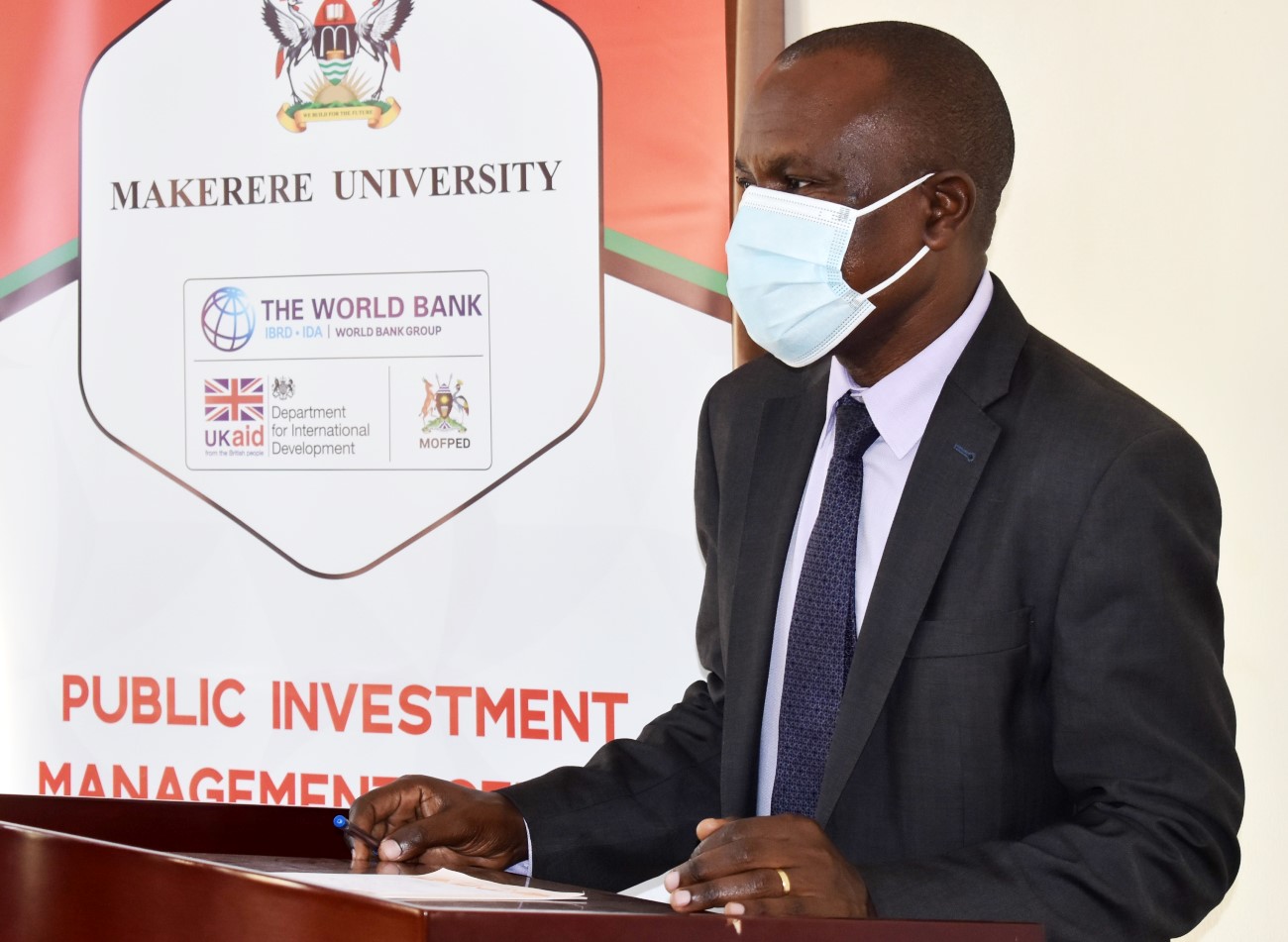
By Jane Anyango
About 20 staff from the School of Economics, the National Planning Authority (NPA) and the Ministry of Finance, Planning and Economic Development (MoFPED) convened at Essella Country Hotel in Wakiso district for a one-week (13th -17th September, 2021) Training of Trainers (ToT) to build capacity in Public Investment Management (PIM).
The training was officially opened by the Principal, Makerere University College of Business and Management Sciences (CoBAMS) Assoc. Prof. Eria Hisali on behalf of the University Management.
The training was organized by the World Bank-funded Makerere University Centre of Excellence in Public Investment Management (PIM CoE) in the School of Economics (SoE), College of Business and Management Studies (CoBAMS).
The training was conducted by paired up facilitators from Government of Uganda (GoU) and Makerere University who have built capacity in the area of PIM system and processes and moved to Queens University in Canada while others have built their capacities locally.
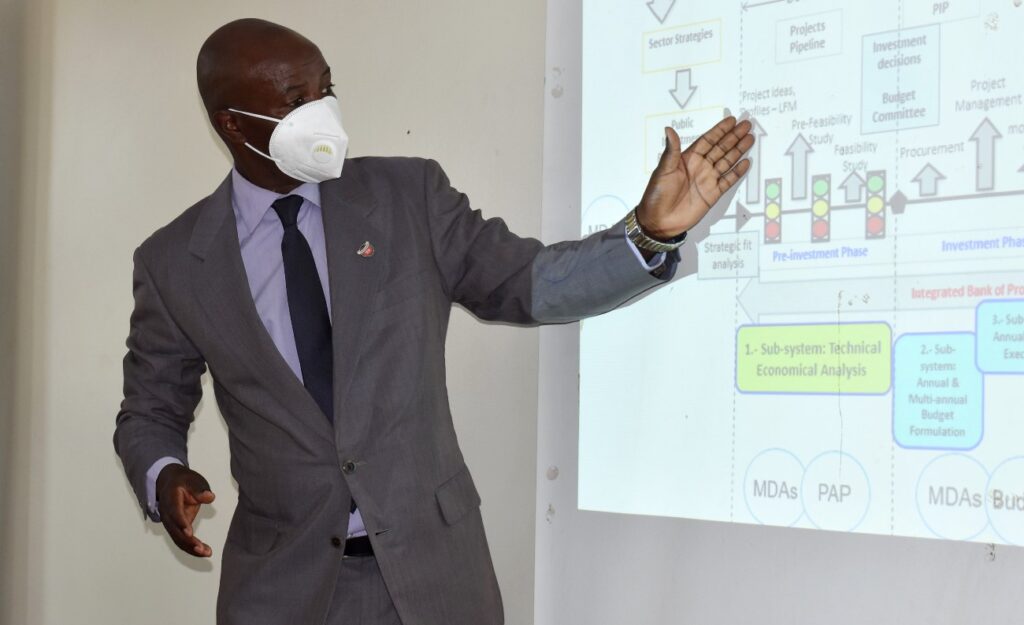
The training emanates from a diagnostic study undertaken by MoFPED and the World Bank in conjunction with School of Economics where weaknesses in the Public Investment Management Systems and Processes were identified.
Part of the weaknesses identified were lack of capacity in project appraisals which is a complex analysis that involves rigorous economic analysis using conversion factors and shadow prices, which are not conventional in the daily economics known.
Some of the aspects covered during this Training of Trainers included: An overview of the PIM System and processes in Uganda, Project Concept Note Presentation, Project Profile presentation, Public Private Partnerships. Integrated Bank of Projects, Integrated Project Appraisal and Economic Analysis of Projects.
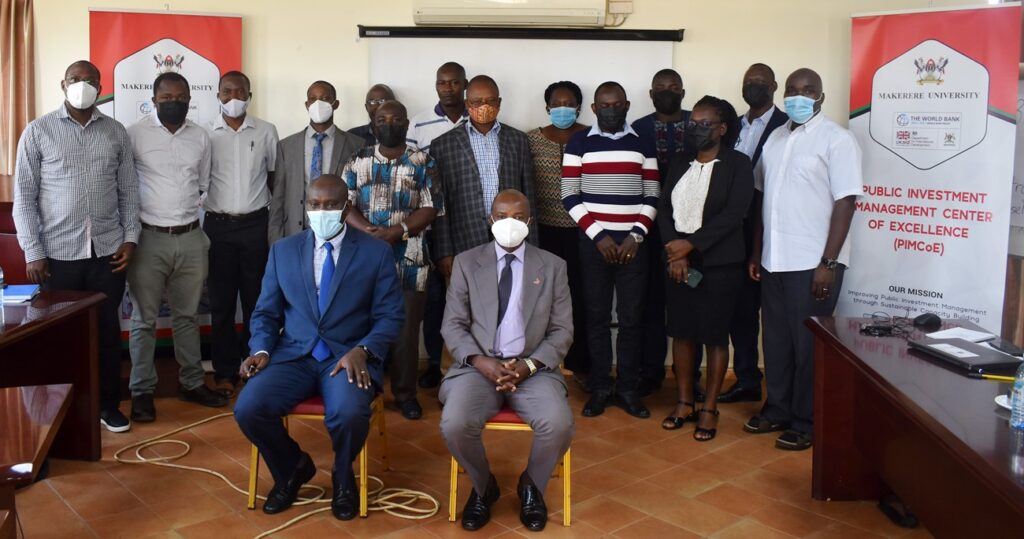
The Principal Investigator Makerere University PIM CoE Prof. Edward Bbaale who is also Dean School of Economics said, as a result of the glaring challenges, interventions were mapped out to establish the PIM CoE that brought on board the Ministry of Finance, the National Planning Authority and the University in a collaborative initiative.
“Out of that, we competed and received a grant from the World Bank to establish a PIM CoE with the mandate to undertake training, research and advisory services in the area of Public Investment Management.
This training is part of the mandate for which the PIM CoE is established. We are trying to increase on a number of trainers. Initially four staff from the School of Economics have undergone training organized by the Ministry of Finance and the World Bank in the area of Public Investment Management and we feel that the four are not enough to undertake this type of training.
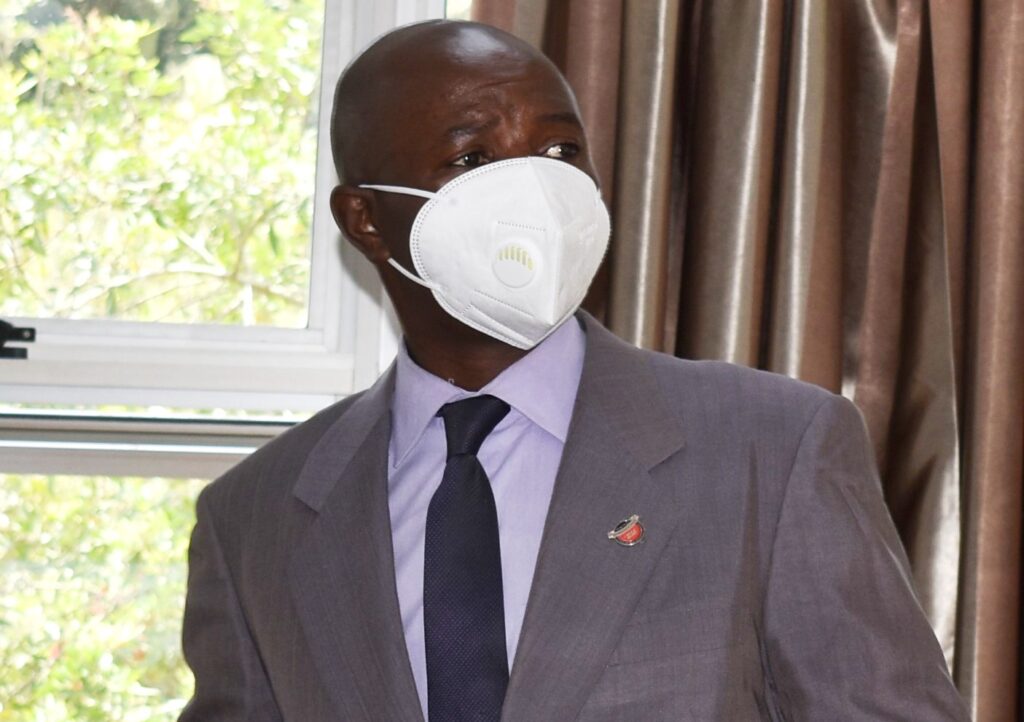
This type of training we are having is a training of trainers with the main intention of increasing the number of trainers in Public Investment Management. Thanks to the World Bank for the grant that is delivering the output and also thanks to the Ministry of Finance for the great partnership”, Prof. Bbaale said.
While officially opening the training, the Principal CoBAMS, Assoc. Prof. Eria Hisali thanked the management of PIM CoE for the numerous activities they have been undertaking over the past one year.
The Principal appreciated the entire management of MoFPED for the support extended to Makerere University, and trainers and participants for interesting themselves in this training program.
“When this initiative was started a couple of years ago, it seemed to be a farfetched idea but I am extremely happy that we can now see some tangible results. Thank you so much for remaining committed and I really hope and look forward to a lot more.
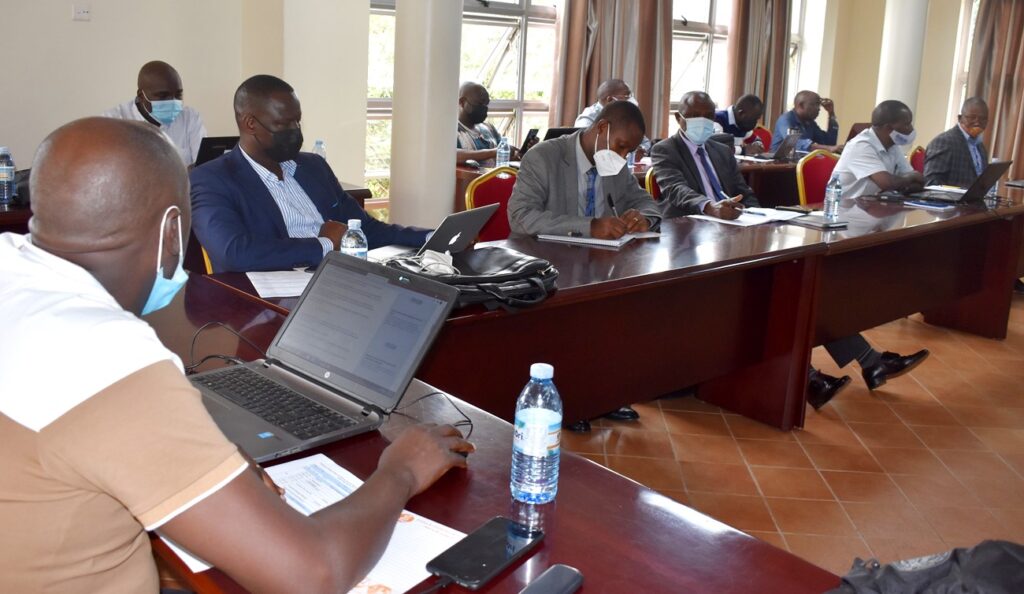
I appreciate the unwavering support from the Ministry of Finance, Planning and Economic Development. They have been participating in the training and playing a key role in having the PIM CoE get to where we are.
The support we got from the World Bank was with a very strong backing from the Ministry of finance. So, we thank you so much and we can only look forward to a stronger collaboration and partnership”, Assoc. Prof. Hisali appreciated.
Dr. Hisali described the PIM CoE as an important initiative whose strategic feet is located within the strategic focus of the college for the next 5-10 years.
“We have taken steps to establish flagship activities. Our focus currently is to have at least one flagship activity at each school. These flagship activities are going to be the main vehicle for engagement with policy makers out there and the community.
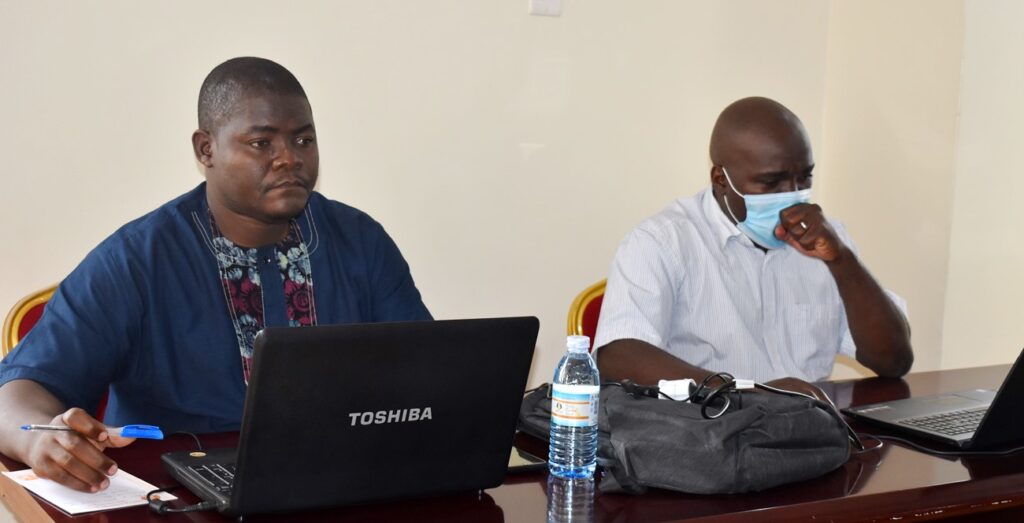
At the School of Economics we started with the Centre for Macro-economic Modelling and works are ongoing and this is yet another initiative that can fit within these flagship activities which takes us to the community and policy makers”, the Principal said.
Over the next five to ten years, Prof. Hisali reported that, the college will be keenly focused on enhancing the capacity of all staff including academic, administrative and support staff.
He said, starting the last Financial Year, the college rolled out an initiative requiring every academic staff to pick at the minimum of two new methodological areas.
The college he said trained staff in Impact Evaluation and has been running a modules in Computer Programming and Object Oriented Programming in Stata. In addition Dr. Hisali said, the college is also running a series of modules in Economic Modelling, Advanced Time Series while the School of Business will be commencing capacity building in Event Study Modelling.
Dr. Hisali said that with the support from the Ministry of Finance, NPA and other players in the public and private sectors, there is an ongoing effort to start a graduate degree program in PIMS and to integrate some of these materials into the university curriculum at the undergraduate and graduate levels.
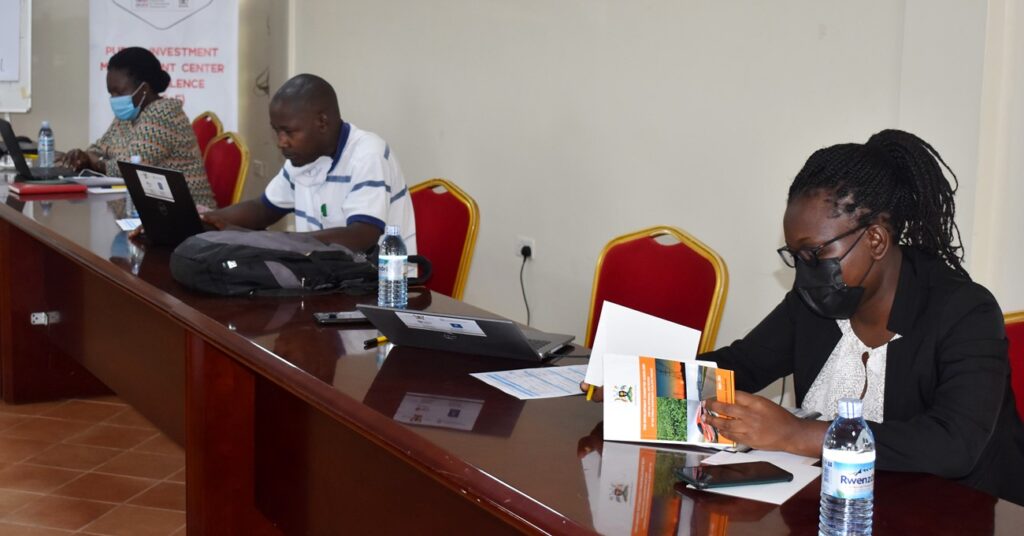
The Principal advised that as government and university embark on this training, it should not be looked at as the end in itself but rather something going to equip all the partners to make bigger contributions.
One of the things Prof. Hisali proposed was the need to take up the idea of a policy lab where on a quarterly basis, the academia, Ministry of Finance, NPA and other stakeholders in PIM should be able to sit together, pick up a topical issue and take off half a day and deliberate on it fully and either make policy suggestions or agree on areas that might require further study in order to come up with meaningful policy interventions in this field.
The second idea proposed by the Principal was getting students on board as the easiest way of getting the multipliers. Dr. Hisali advised that as the university integrates the materials in the curriculum and wait for the degree program, there can be a shortcut where graduate students are encouraged to take up topics for their dissertations and encouraged to pick and use these important tools and in that way, the multiplier will increase and become bigger.
The other issue on taking up multipliers according to Dr. Hisali would be undertaking some studies like computation of shadows and parameters .In this regard, he said, the university can again collaborate with the Ministry to fund a few of these studies in groups.
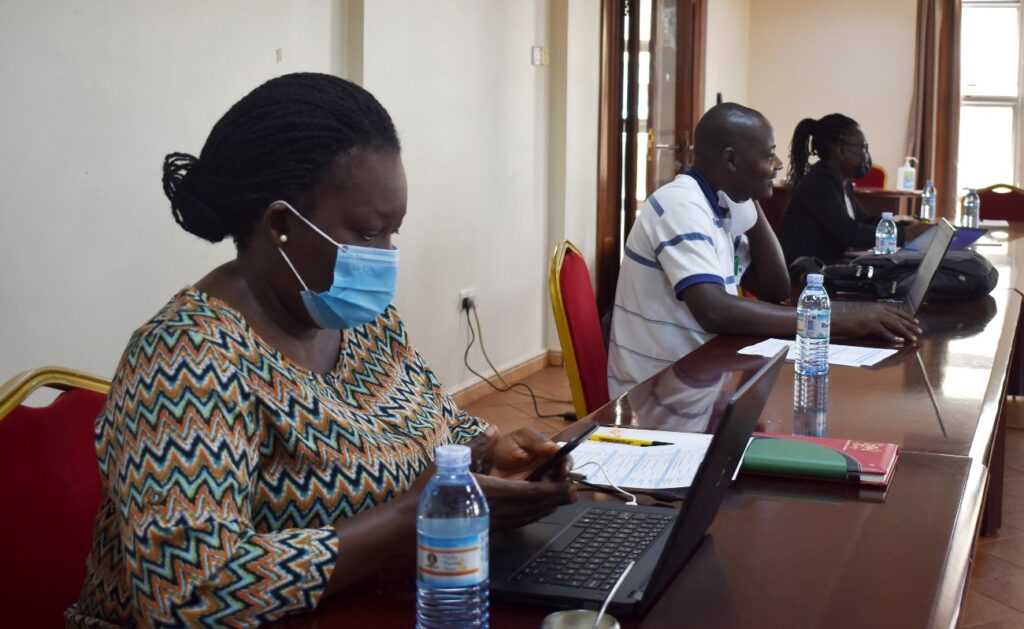
Dr. Hisali reported that the college has been supporting some research and publications for the last five years but it is now having conversations on the possibility of changing the modality of that support and focus on putting together those resources to support research projects that will be using some of the new tools being learnt.
“So we will be moving away from the old approach to a new dispensation where we look into the methodology you are using and once convinced that it fits within these new areas we are trying to build capacity then we support. So the little facilitation at the college level will be biased towards initiatives like this and then definitely the tools of economic analysis that you are picking through this training will be one of those areas we want to support,” Prof. Hisali said.
Dr. Hisali expressed the university commitment to continue supporting and to ensure that these initiatives succeed saying, management was already in discussion with the ministry to ensure that the PIM CoE can be sustained not to end with the World Bank support.
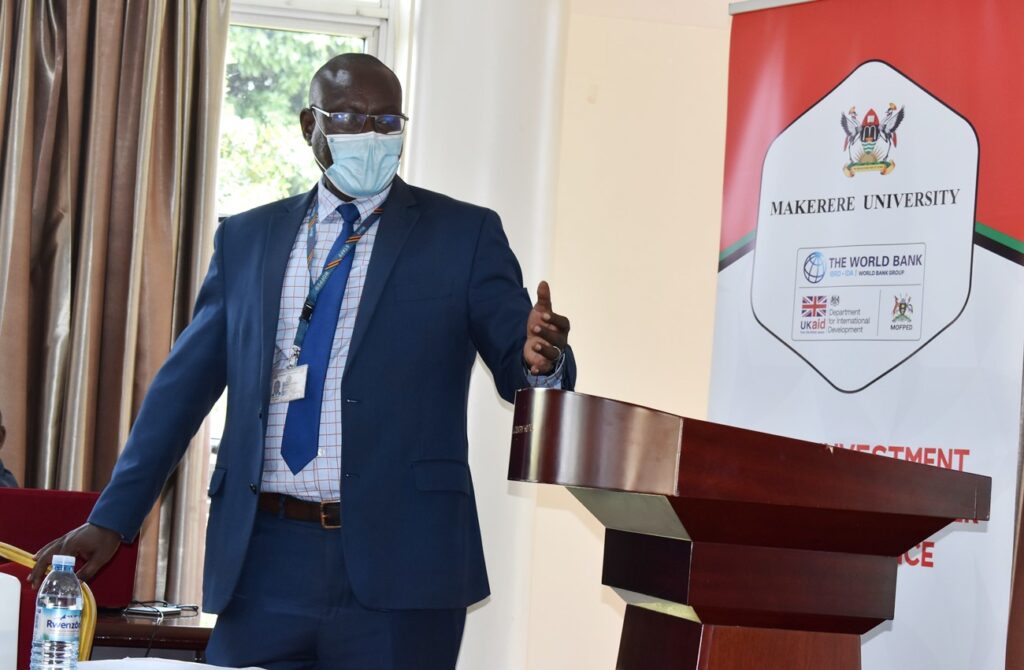
The Commissioner for Projects and Public Investments in the Ministry of Finance, Planning and Economic Development Hannington Ashaba said Public Investment Management largely involve system, institutions, processes that government uses to appraise public investments to ensure that only tangible and viable projects are implemented to give better returns and to make sure that they contribute to the national development agenda.
Commissioner Ashaba said government has been implementing a number of PIM reforms and notable among them is to build capacity across government to ensure that they have in-country capacity that enables government ministries to do feasibility studies such that only viable projects can be included in the budget and government plan.
“It is on the basis of that that we think that working Makerere University School of Economics will help churn a large number of professionals in PIMS that will be very impactful in supporting government especially under the National Development Plan III which is focusing on core infrastructure projects that will propel the country to a middle class economy”, Mr. Ashaba said.
The commissioner said some of the challenges government is facing in PIMS go beyond capacity to include the fact that Uganda as a developing country has resource constraints. Ashaba told participants that the money is not enough so, it must be rationalized and allocated to only projects with bigger impact that will generate growth and revenue to repair the national debt.
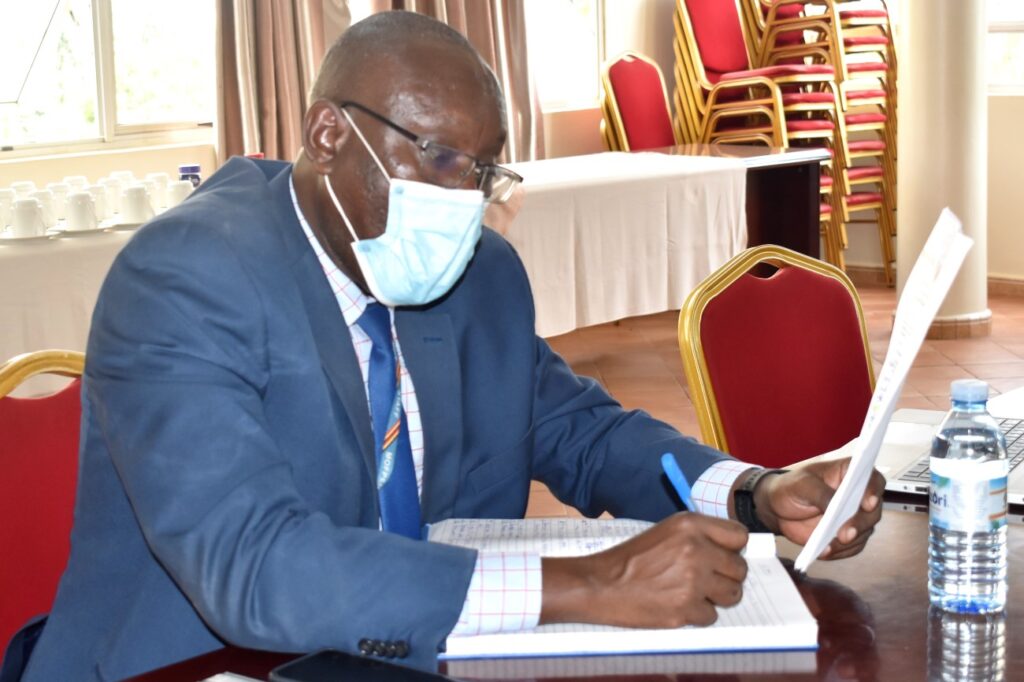
Mr. Ashaba said besides the budget constraints, there is need to ensure that government is working as a whole to solve the coordination issue in the way projects are identified, prepared and studied such that by the time a decision to undertake a project is reached, it is really a project well-grounded to guarantee proper implementation, coordination and completion on time not to escalate costs.
“ Makerere is coming in at the right time when we are deepening the PIM reforms and we think that the academia especially the School of Economics which is setting up a PIM CoE will ensure that some of the curriculum includes PIMS aspects to ensure that graduates churned out are clearly well grounded in public investment.
But also two, we have a gap of evidence around public investment. So, if Makerere could help in undertaking topical studies, that would help generate evidence on how investment contribute to growth and also may be identify most of impactful projects where we need to deepen some of the interventions around PIMS” the commissioner stated.
Mr. Ashaba was also optimistic that the University PIM CoE will not only help government in capacity building and conducting topical studies and research but, also come in handy to act as independent reviewers of government so that they can give independent advice on viability of some of the projects so that they can assist government in taking decisions on some public investments.
The Manager Makerere University PIM CoE Dr. Willy Kagarura said the aim of the center is to train people locally and internally so as to improve what is delivered to the students to be relevant on the job market.
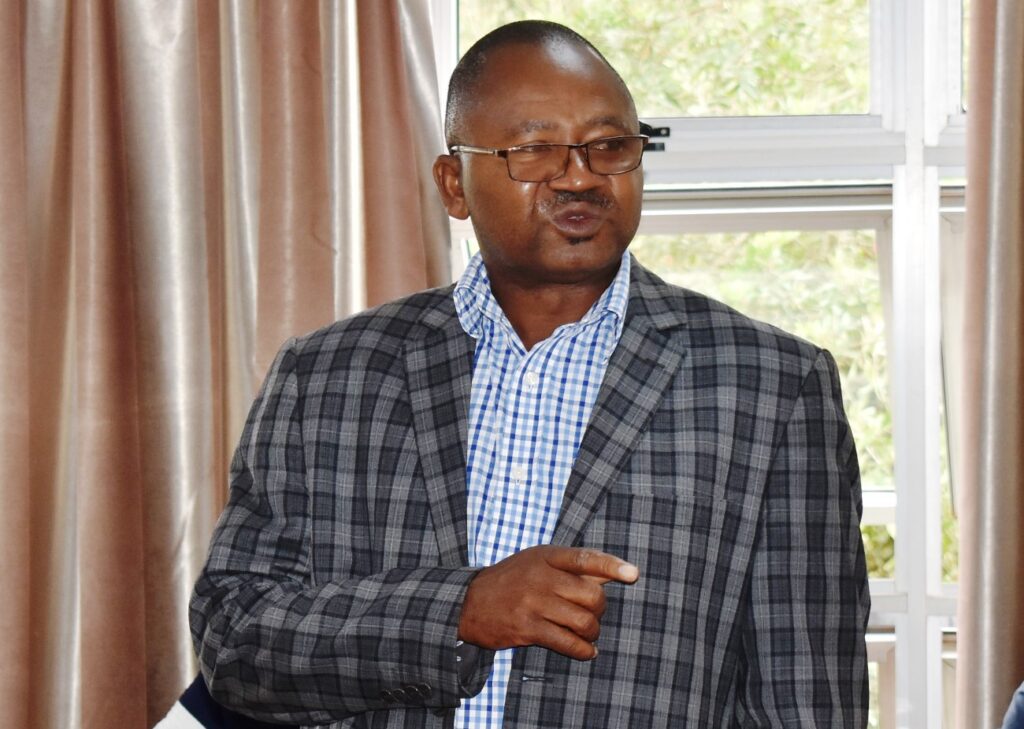
“Four people have been on this training with the Ministry of Finance. We want to extend our capacity at our school to deliver the mantle and train people in government offices and our students so that they don’t face challenges when out of the university.
We are continuing to update ourselves to international levels and in October 2021, we are supposed to go to Queens University but some four people have been admitted to attend the Queens University training so that we build capacity at that level, then our graduates here will be skilled continuously up the international standards.” Dr. Kagarura explained.
Another centre mandate according to Dr. Kagarura is to develop short and long term Public Investment Management curriculum and materials. He said, with the support of the Ministry of Finance, the short term courses, materials and curriculum used in the ToT training were developed.
Dr. Kagarura also reported that as part of the mandate, the center has trained government practitioners in Munyonyo and was now partnering with Ministry of Finance in partly delivering that.
“In conducting research, two impact evaluation studies have commenced and there is another study to evaluate the impact of COVID-19 on Public Investment Management framework in Uganda. The other one is to roll out training and awareness to other universities where the trainees will be used to go to other universities”, Dr. Kagarura added.
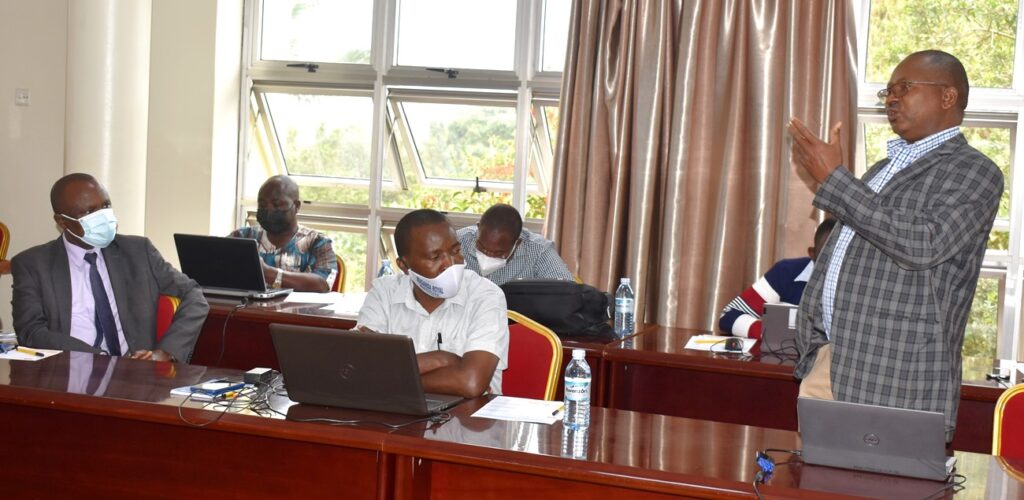
Dr. Kagarura also reported that the centre has established an office for sustainably managing the trainings and was in touch with the Institute of Public Management to have an accreditation as an approved training entity so that once people train, they do exams from the Institute of Public Management and get a certificate. This will easy recruitment of interested people and service delivery.
Besides the funder’s conditions and the COVID-19 Lock down that partly delayed the commencement of the center activities, Dr. Kagurura decried the tedious process in the PPDA that hampered the center activities. He said the Centre activities planned to start in 2017 delayed till September 2020 due to multiple approvals in the PPDA.
“We need to establish the loss incurred through this PPDA processes to our economy. If I can get a laptop at the market at shs 3 million, through PPDA it will take a year in hustles and approvals and get it at shs.9 million or lowest at Shs. 7million, this is just a laptop, what about the roads! So processes are a problem”, Dr. Kagarura submitted.
He said despite the COVID-19 lock down, the trainings were conducted online with interruptions of connectivity. Dr. Kagarura called upon the, donors, University, college, Ministry of finance, NPA and other partners for support to ensure the centre is sustained beyond the World Bank funding.
Jane Anyango is the Principal Communication Officer, College of Agricultural and Environmental Sciences (CAES)
You may like
-


EfD-Mak Holds 2nd Advisory Board Meeting: Charts Path for Growth
-
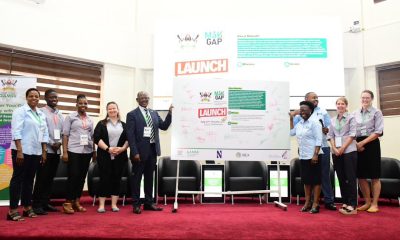

Launching The MakGAP
-
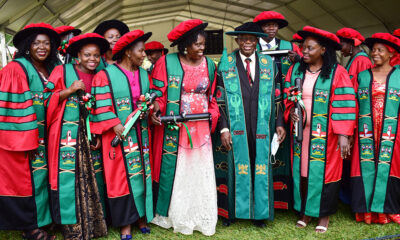

Advert: Postgraduate Admissions 2025/26
-
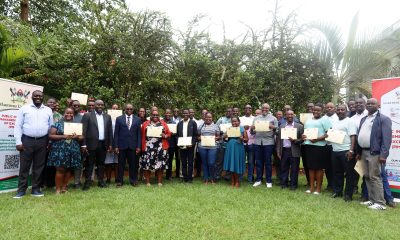

Makerere’s PIM Centre Concludes Training on Certificate of Financial Implications (CFI)
-
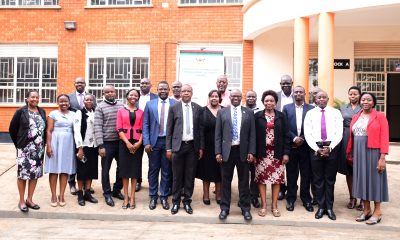

School of Business Conducts Strategic Leadership Training for Makerere University Managers
-
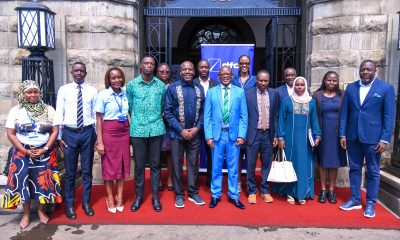

Makerere University, DFCU Bank Sign MoU to Advance Innovation, Student Leadership and Research
Agriculture & Environment
Mak Moves to Revitalize Food Technology & Business Incubation Centre to Drive Innovation & Entrepreneurship
Published
5 days agoon
July 14, 2025By
Mak Editor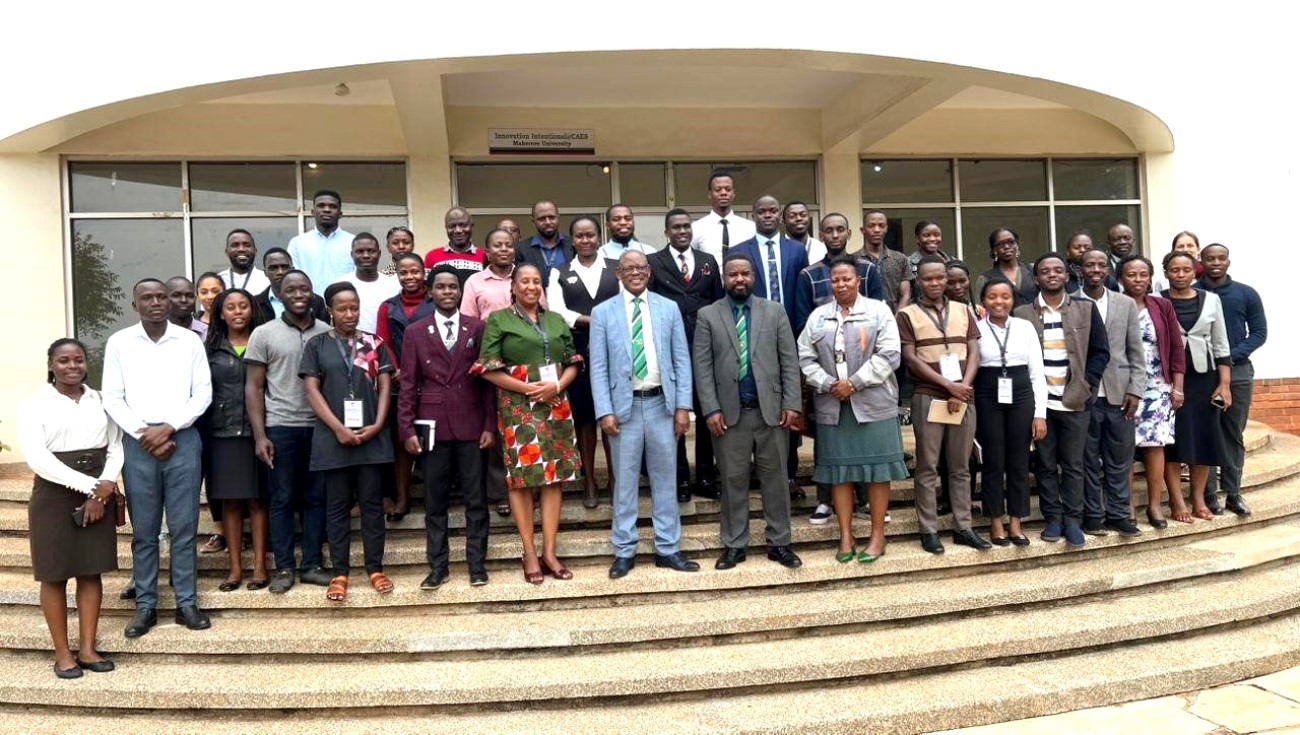
By Ssembogga Derrick
Makerere University marked a significant milestone on Thursday, 10th July 2025, with the launch of the revitalization programme for the Food Technology and Business Incubation Centre (FTBIC). This initiative is poised to position the FTBIC as a national hub for food innovation, student enterprise development, and agro-industrial transformation.
Hosted under the School of Food Technology, Nutrition and Bioengineering (SFTNB) at the College of the Agricultural and Environmental Sciences (CAES), the revitalization of the FTBIC is intended to bridge the gap between academia and industry. “We aim to achieve this by supporting food-based start-ups, enhancing graduate entrepreneurship, and promoting the commercialization of research,” Dr Julia Kigozi, Dean, SFTNB explained. The project receives critical funding from the Makerere University Research and Innovations Fund (MakRIF), which consistently supports innovation and research-based development at the university.
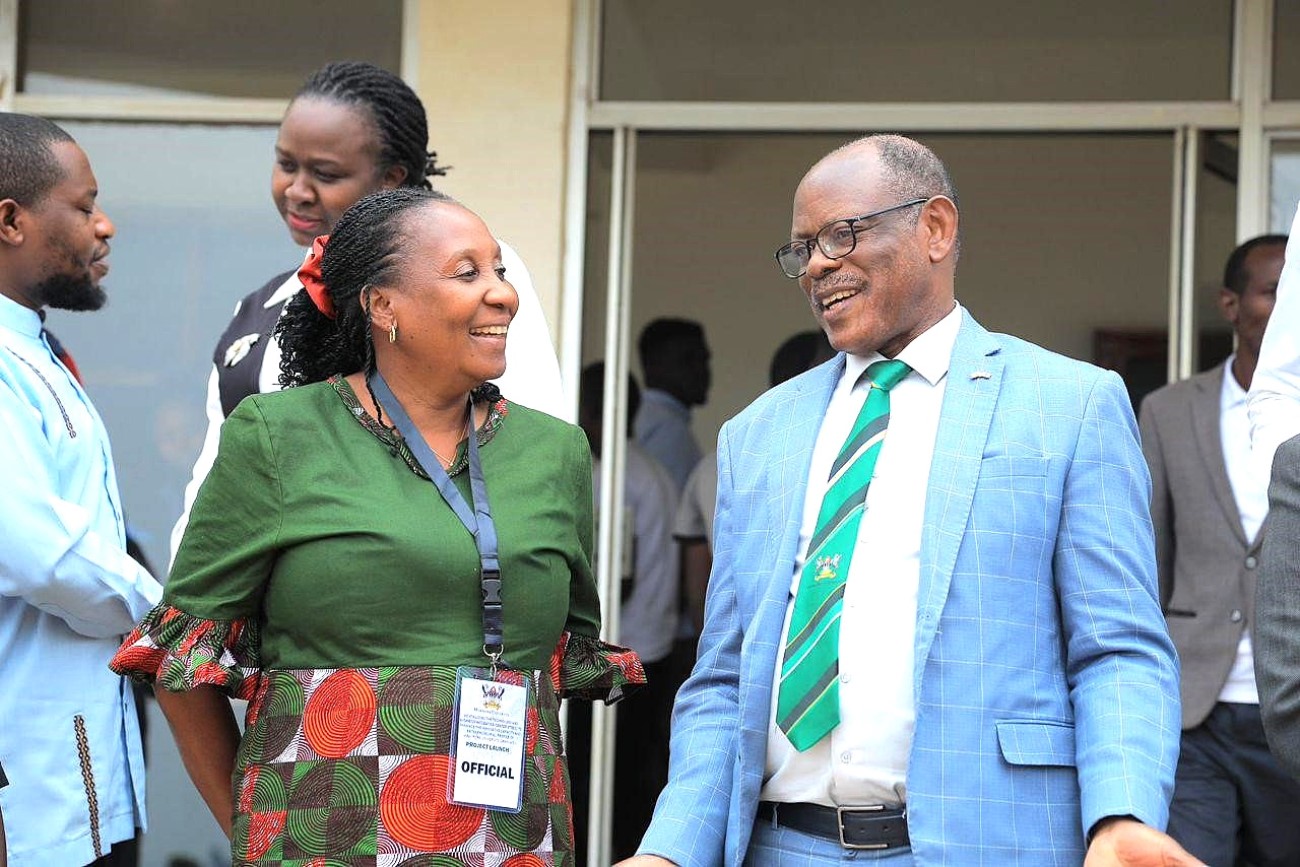
Unveiling a New Strategic Vision
The event, held under the theme “Revitalizing FTBIC to Unlock Innovation and Entrepreneurship Potential among Makerere University Graduates”, marked the official launch of the Centre’s revitalization programme to key stakeholders. It featured the presentation of FTBIC’s new strategic vision and direction, highlighting the commitment of the institution and its partners to fostering graduate entrepreneurship and innovation in food systems. The event also aimed to raise awareness of the Centre’s crucial role in supporting industry, research, and national development.
Participation of stakeholders
The launch attracted a vibrant and diverse audience of over 50 participants. Among the attendees were student representatives; partners from other incubation centers both within and outside Makerere University, including MIIC, UNIPOD, and DGI; as well as representatives from national innovation stakeholders such as Uganda Industrial Research Institute (UIRI) and StartHub Africa.
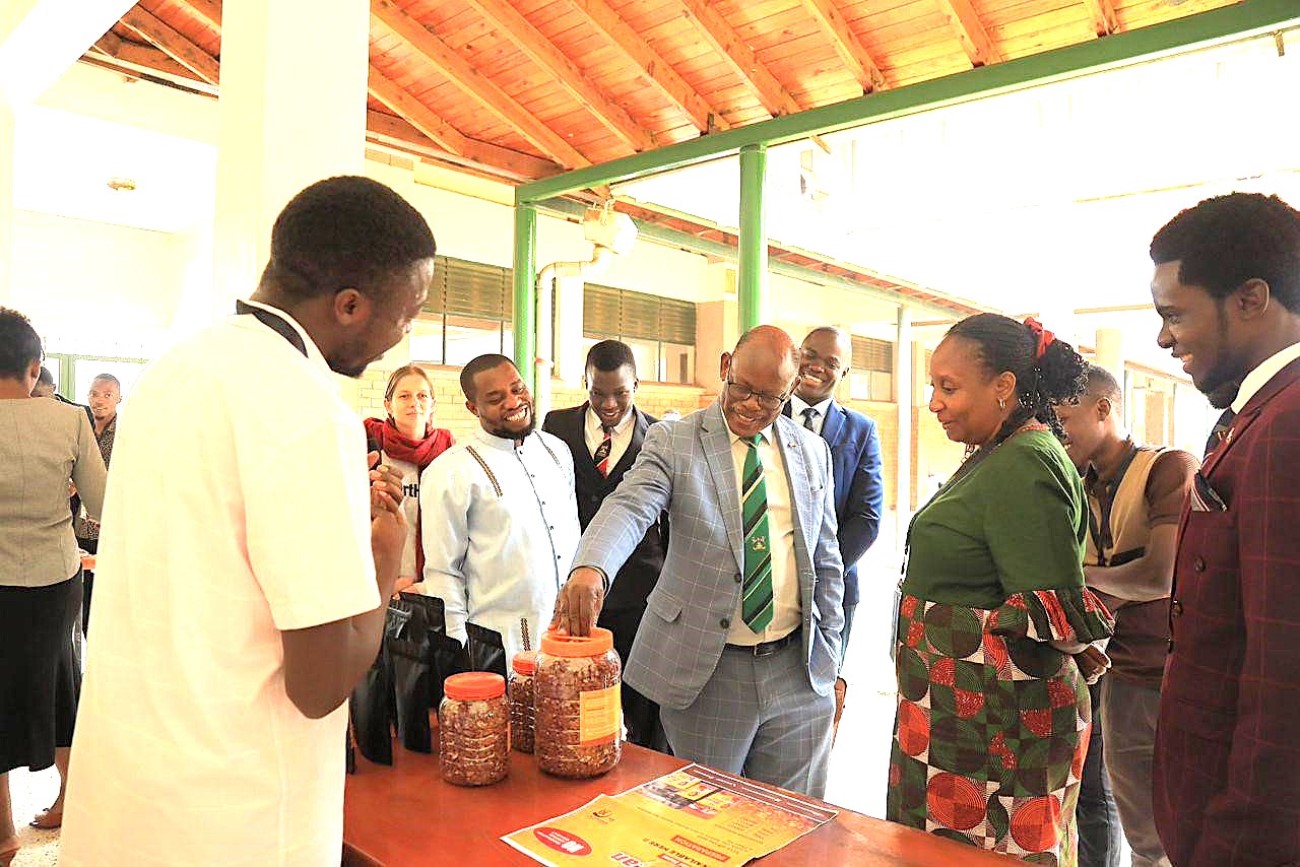
Most notably, the event was honored by the presence of the Vice Chancellor of Makerere University Prof. Barnabas Nawangwe. The Vice Chancellor commended the revitalization efforts, acknowledging the Centre’s immense potential to incubate hundreds of food-based start-ups and create employment opportunities for thousands of graduates. “The Centre is now well-positioned to become a flagship platform for innovation, employment creation, and agro-industrial development in Uganda and beyond. Makerere University remains committed to supporting such initiatives that align with national priorities and global development goals.”
The event featured the unveiling of the operational framework for the revitalized Centre, highlighting its commitment to innovation, entrepreneurship, and practical graduate training. Stakeholders in attendance expressed enthusiasm and pledged support for future collaboration, research, and product development initiatives aligned with national development priorities. The event also provided a platform to deepen partnerships with private sector actors and development organizations, reinforcing confidence in the Centre’s potential to serve as a national model for university-led incubation.
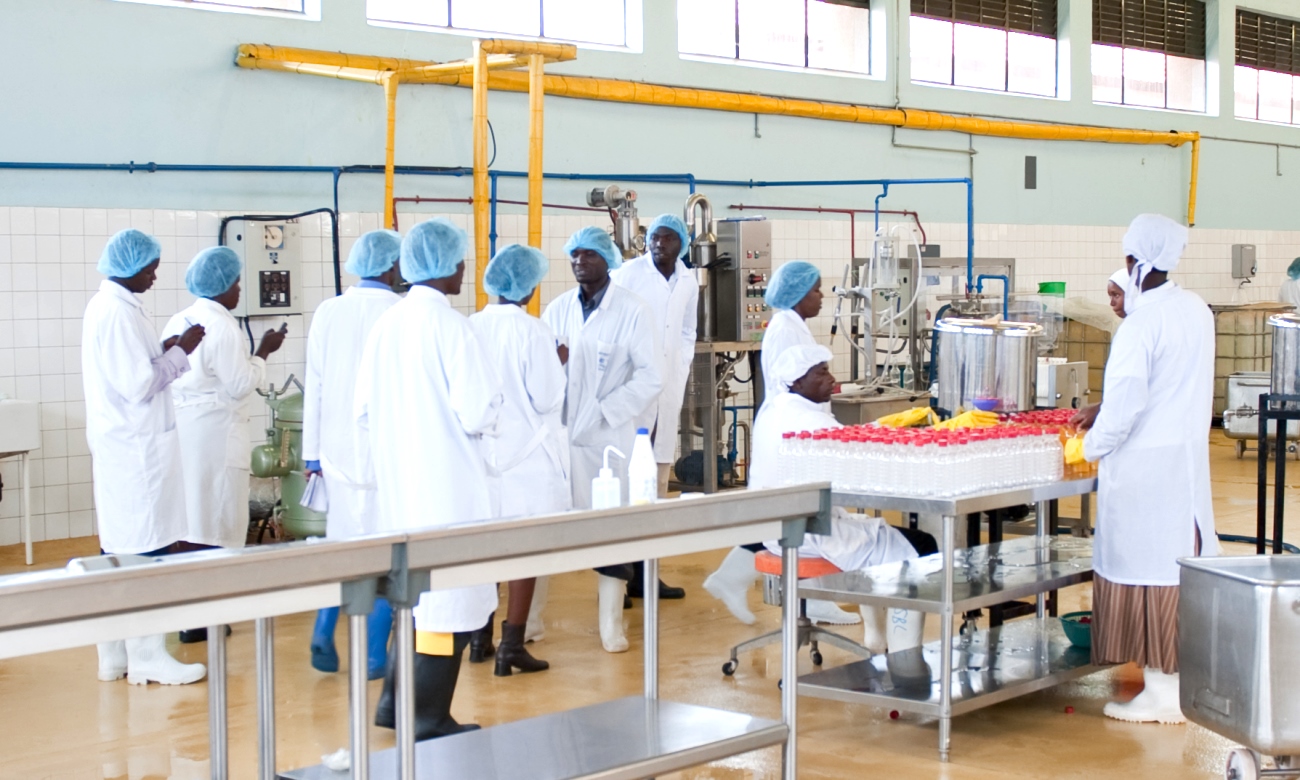
Agriculture & Environment
SophiA Project Upgrades Medical Infrastructure at Buvuma Health Centre IV, Trains Technicians for Maintenance Works
Published
1 week agoon
July 9, 2025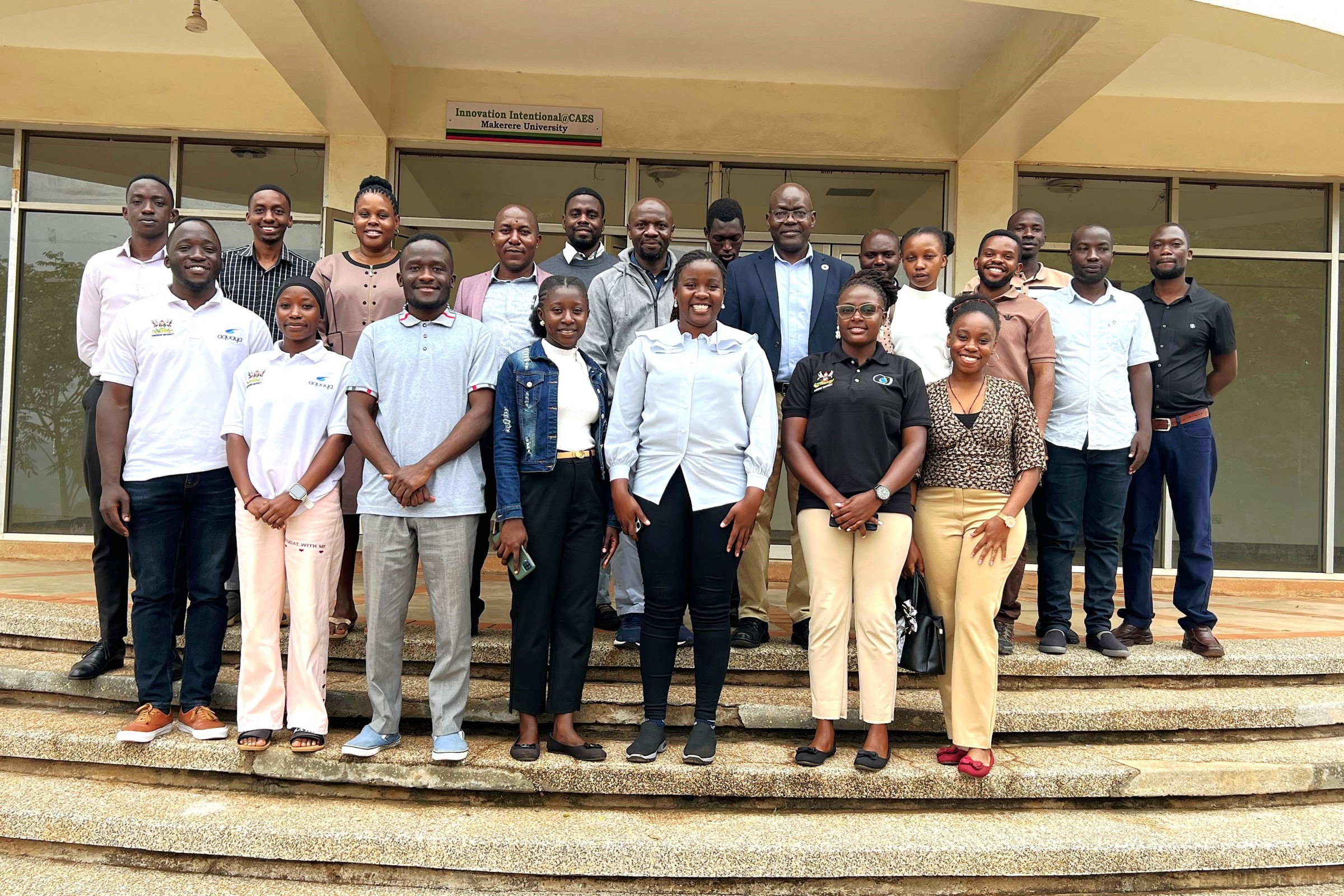
Overview of the Sustainable Off-Grid Solutions for Pharmacies and Hospitals in Africa (SophiA) Project
Despite ongoing urbanization across Africa, the majority of the population still resides in rural and remote areas, where infrastructure development remains limited. These regions face significant challenges such as lack of access to healthcare, education, clean water, and reliable electricity, contributing to higher rates of illness and poverty compared to urban centres. According to reports, Sub-Saharan Africa has approximately 120,000 public health facilities (22,000 hospitals and 98,000 health posts), of which around 26% lack any electricity access, and only 28% have reliable power supply.
Access to good healthcare is critical for sustainable development. However, many rural medical centres operate under harsh conditions – using polluted water, lacking cooling for medicines, and facing poor sanitation – largely due to unreliable electricity and water supply. Although half of the population in Sub-Saharan Africa lacks electricity, the region has abundant renewable energy potential that can be effectively harnessed through off-grid solar photovoltaic (PV) systems.
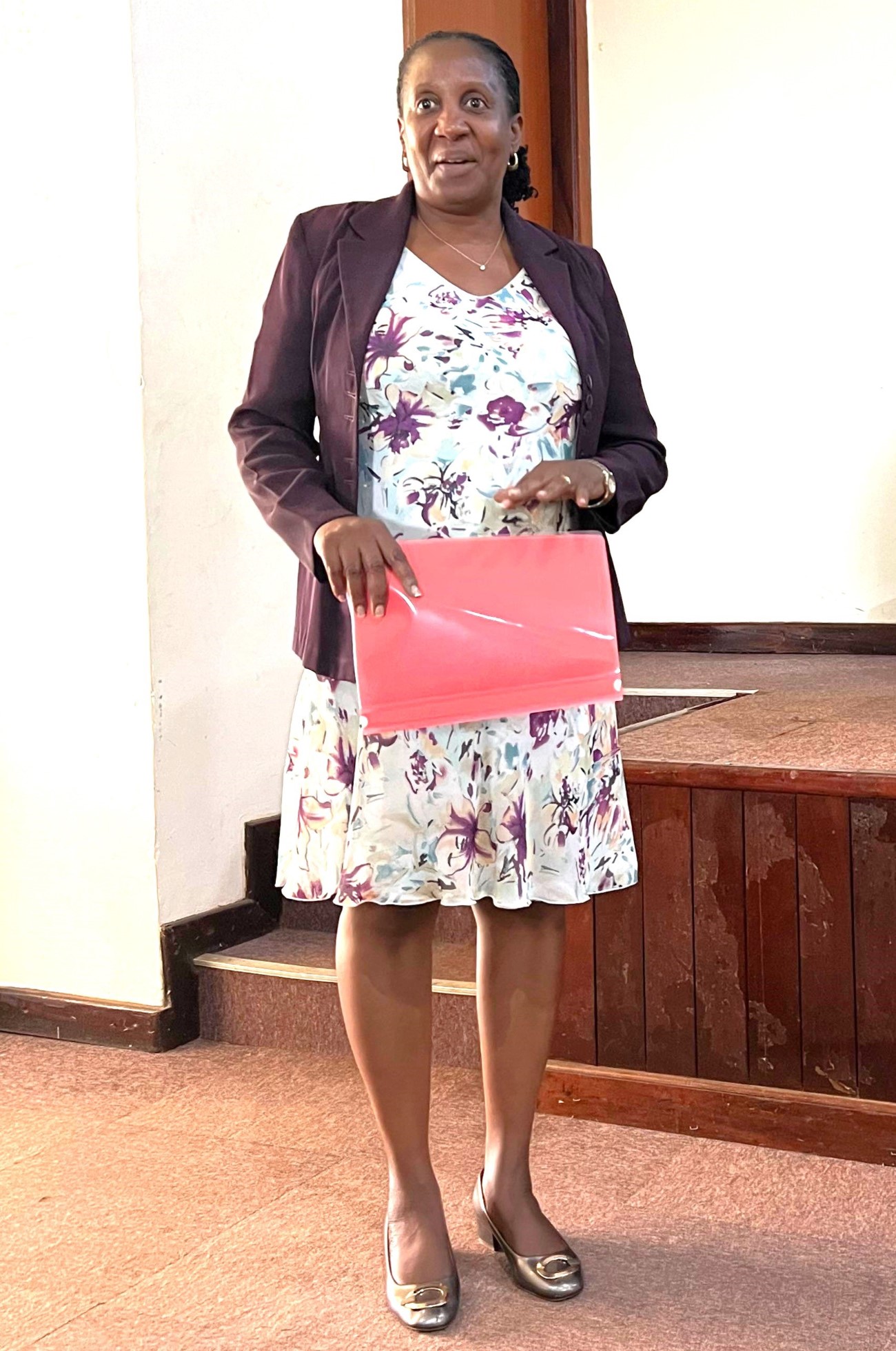
To address the above-mentioned challenges facing the African Continent, Makerere University in partnership with 13 organizations across Europe and Africa developed a project titled, “Sustainable Off-grid solutions for Pharmacies and Hospitals in Africa (SophiA)”. The five-year project that began on 1st October 2021 is funded by the European Union (Project: 101036836 – SophiA – H2020-LC-GD-2-3-2020). At Makerere University, the project is coordinated by Dr. Nicholas Kiggundu, Associate Professor in the Department of Agricultural and Biosystems Engineering, College of Agricultural and Environmental Sciences (CAES).
Piloted in Burkina Faso, Cameroon, Malawi, and Uganda, SophiA aims to provide sustainable off-grid energy solutions to rural and remote health facilities, fostering economic growth and ensuring equitable access to energy and healthcare. Using various technologies, such as photovoltaics, solar thermal, electrical and thermal storage, water treatment and natural refrigerants with low global warming potential, SophiA has developed and manufactured locally innovative, modular, affordable and efficient solar powered systems for providing:
- Safe and clean drinking water, free of bacteria and viruses, and deionised water for medical purposes;
- Hot water and steam production for thermal requirements of the hospitals;
- Cooling of medicines and food at +5°C;
- Low temperature storage of blood plasma and vaccines at -30°C;
- Ultra-low temperature storage of sensitive medication (e.g. some Covid-19 or Ebola vaccines) at -70°C.
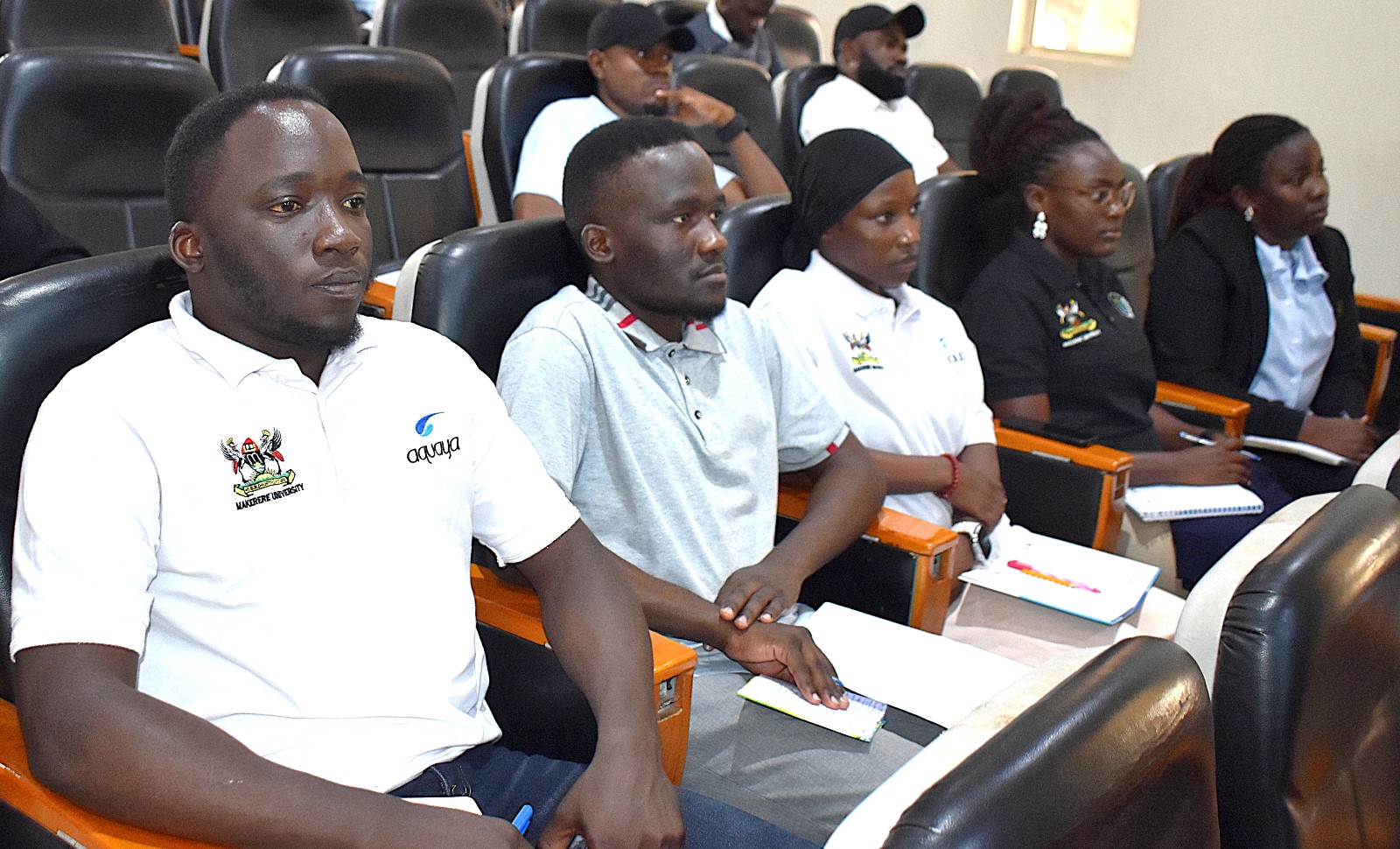
In addition, PV MedPort, a simple and 100% solar-powered solution has been developed and tested as a mobile health care station in small remote areas in 4 different geographical conditions in Africa. The SophiA system has been manufactured in Africa and will provide, for the first-time, innovative solutions based on climate-friendly natural refrigerants to cover cooling demand for three different temperature ranges (-70°C, -30°C and +5°C). The system has been tested and demonstrated at four rural hospitals in remote regions throughout the African continent covering the major geographical regions and different climatic conditions in Burkina Faso, Cameroon, Malawi and Uganda.
SophiA Project initiatives in Uganda
In Uganda, all Health Centre IV hospitals with surgical theatres have been connected to the national grid except Buvuma Health Centre IV, which serves over 120,000 people scattered across 52 islands. Recognizing this gap, the Ministry of Health selected Buvuma Health Centre IV for the SophiA project to demonstrate sustainable off-grid solutions.
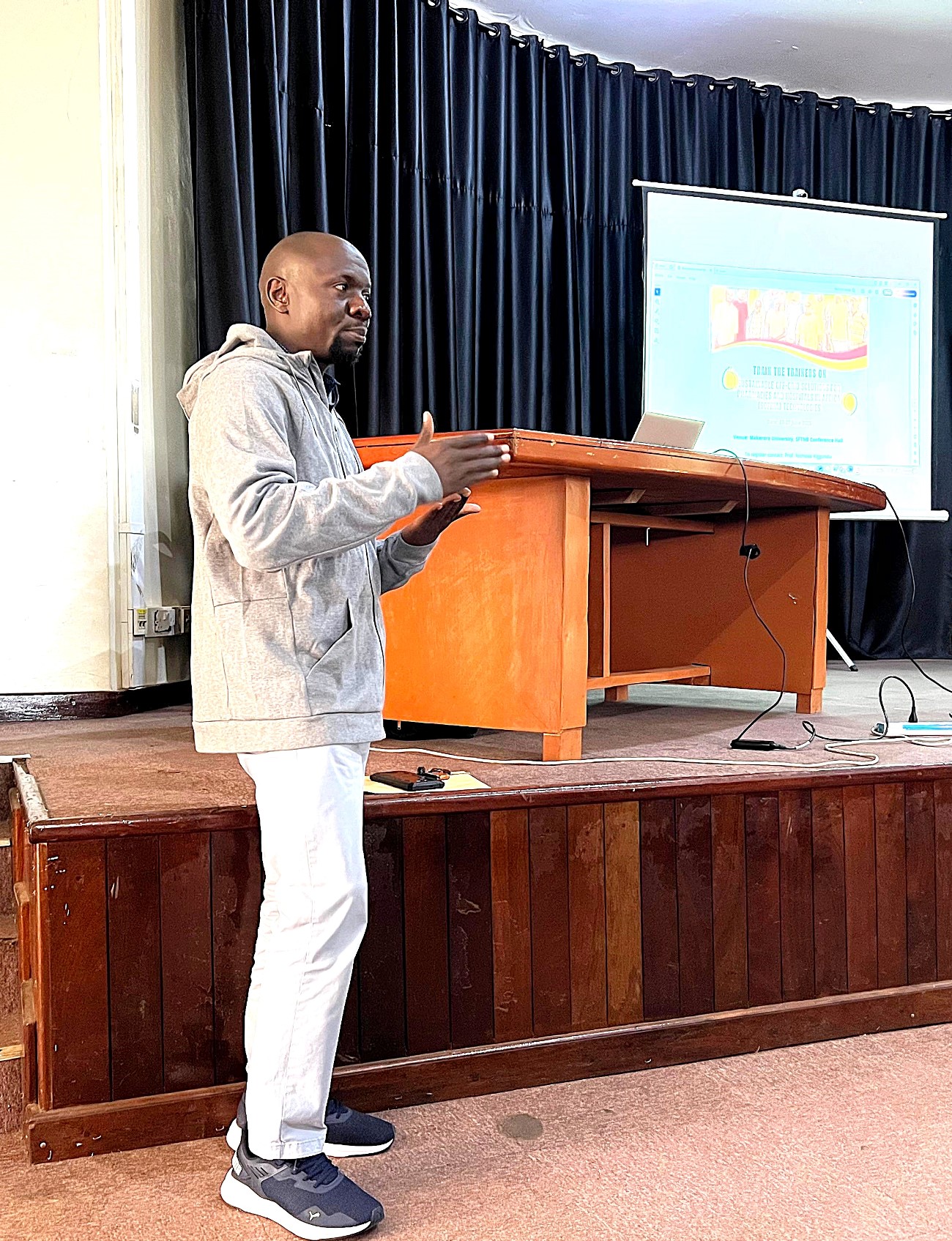
The SophiA System at Buvuma Health Centre IV provides the following services:
- Off-grid electricity supply
- Safe, clean drinking water for patients, staff, and the community
- Hot water and steam systems crucial for maternal care
- Solar-powered cooking and meal preparation
- Cooling systems for surgery and intensive care units
- Refrigeration for medicines at +5°C, blood plasma storage at -30°C, and ultra-low temperature storage (-70°C) for sensitive vaccines such as those for COVID-19 and Ebola
Training of Trainers Workshop
As the SophiA project approaches completion in September 2025, it is vital to establish a skilled pool of technicians capable of handling maintenance and minor repairs of the system components, including solar panels, water treatment units, generators, batteries, and cooking kits.
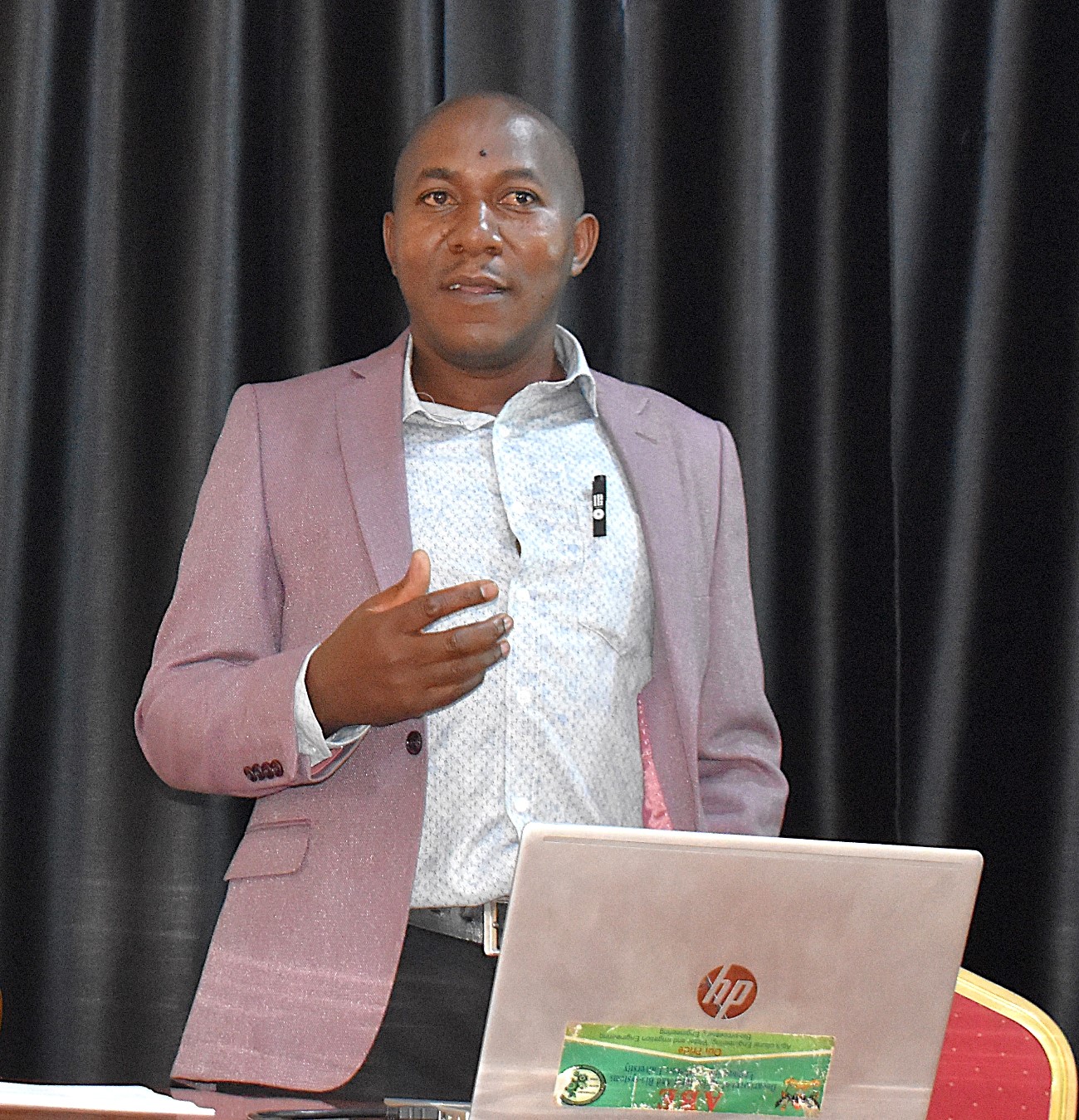
From June 23 to 27, 2025, Makerere University hosted a comprehensive Training of Trainers workshop. The training programme encompassed a diverse range of topics delivered by subject matter experts from institutions, including Makerere University (Department of Agricultural and Biosystems Engineering – CAES, and the College of Engineering, Design, Art and Technology – CEDAT), Hochschule University of Applied Sciences, and Busitema University. Participants were carefully selected from diverse professional backgrounds, including recent engineering graduates from CAES and CEDAT, Makerere University, University technical staff, personnel from Kyambogo University, officials from Buvuma District Works and Health Departments, and electricians from Kampala City. The training sessions were conducted at Makerere University and Buvuma Health Centre IV Hospital.
Training Modules Included:
- Sustainable energy systems and their practical applications
- Energy generation and storage technologies
- Solar water heating: design, operation, maintenance, and performance optimization of solar water heaters, crop dryers, and concentrating solar heaters
- Solar PV technologies in Uganda: cell technology, system design, operations, maintenance, and hands-on practicals for standalone and grid-connected systems
- Public health implications of water quality
- Water treatment and quality management, including protocols, parameters, and case study on the MCDI treatment system
- Water quality testing methodologies
- Introduction to sustainable refrigeration and cooling technologies
- Environmental impact and safety considerations for refrigerants
- Refrigeration cycles and component overview
- Life cycle assessment of SophiA technologies
- Thermal energy storage within the SophiA system
- Steam as a productive energy source
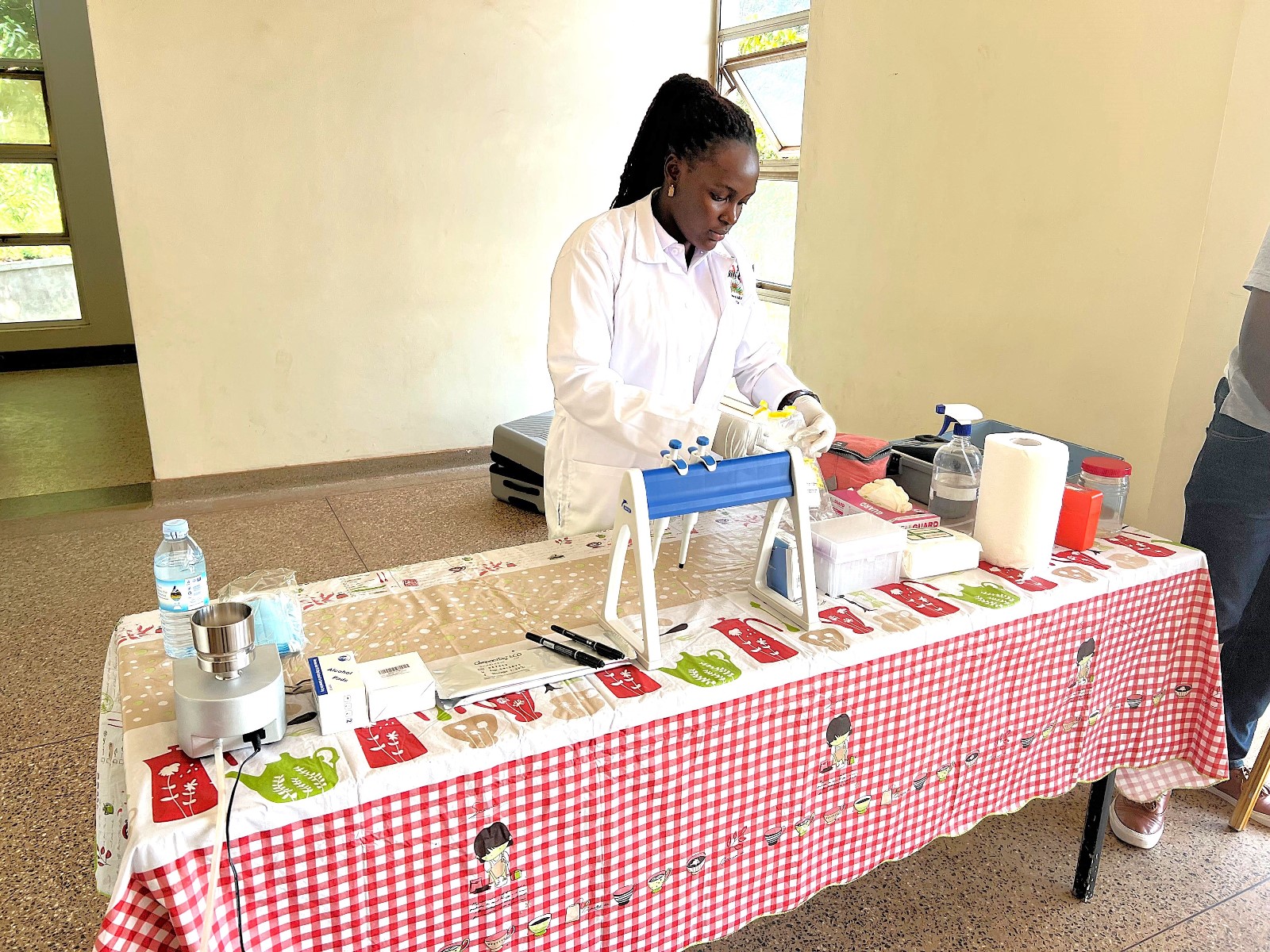
The Training Sessions
Day One: Introduction to foundational concepts in solar energy technologies
The first day of the SophiA Train the Trainers Workshop focused on building foundational knowledge in sustainable and solar energy systems. Led by Dr. Peter Tumutegyereize and Dr. Francis Mujjuni, participants explored a range of technologies and applications critical to clean energy deployment.
Key topics included:
Sustainable Energy Systems: Introduction to renewable energy systems including bioenergy, hydro, wind, geothermal, hydrogen fuel cells, and battery storage.
Solar Radiation & Geometry: Understanding solar constants, irradiance, and the impact of atmospheric conditions on solar performance.
Solar Thermal Technologies: Detailed look at solar water heating systems (FPCs and ETCs), maintenance, sizing, and solar dryers for agricultural and industrial use.
Photovoltaic (PV) Systems: Working principles, types of PV cells, performance factors, and diagnostics. Practical testing techniques and metrics like Voc, Isc, MPP, and PR were discussed.
Simulation & Application: Olivia Nakiwanuka demonstrated a PVsyst-based simulation of a 2.55 kWp standalone system for a conference hall, showing a high solar fraction (97.88%) and low LCOE (USD 0.03/kWh).
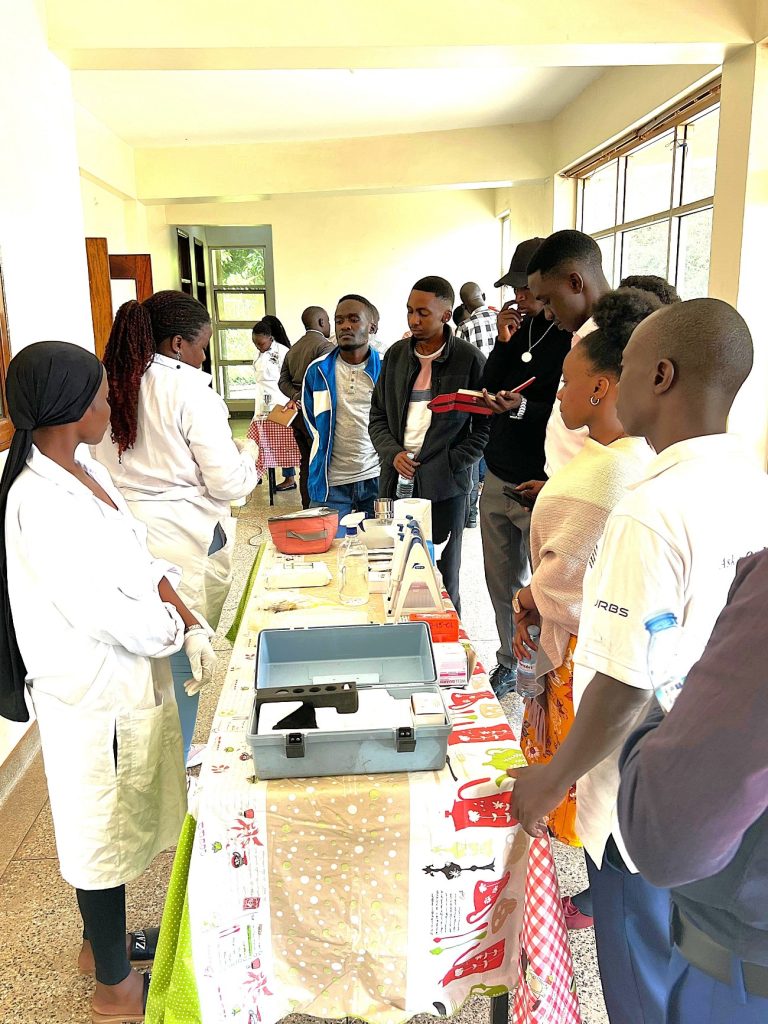
The sessions emphasized practical skills, performance analysis, and real-world application, equipping participants to train others and support solar adoption, especially in rural and off-grid settings.
Day Two: Water Treatment Technologies
The second day focused on water treatment technologies relevant to low-resource healthcare settings. Facilitated by Sneha De and Mr. Duc Dinh Ngoc from Hochschule Karlsruhe University, sessions covered technical, environmental, and operational challenges, with contributions from Dr. Joshua Wanyama on water quality management and Dr. Prossie Nakawuka on practical water testing.
Key challenges addressed included unreliable water supply and contamination in healthcare facilities, emphasizing the need for decentralized water treatment, especially in rural areas.
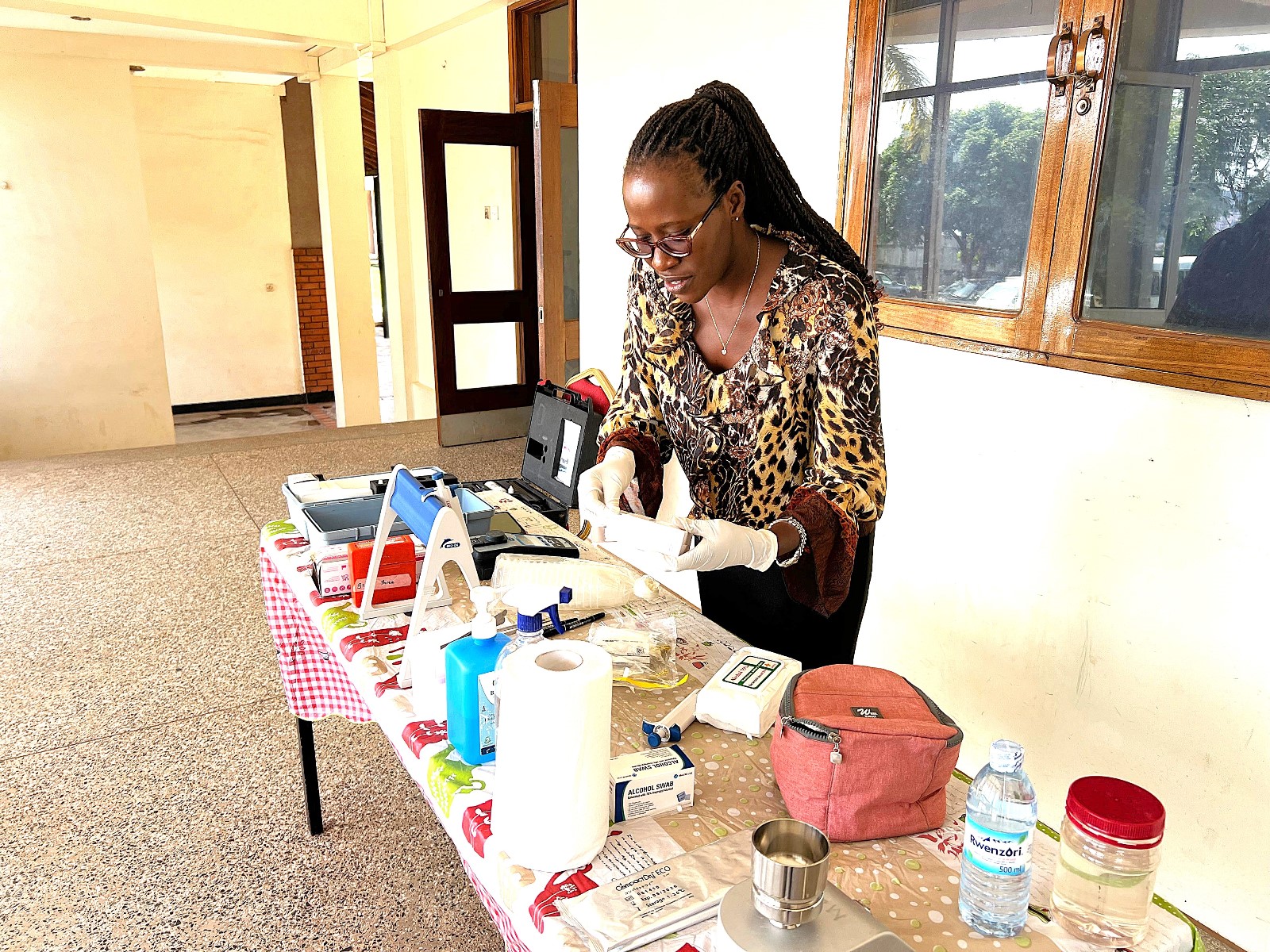
Sneha De reviewed biological and physical/chemical water treatment methods, highlighting technologies such as activated sludge, filtration, membrane bioreactors, and advanced disinfection techniques. The SophiA modular water treatment system, integrating ultrafiltration and membrane capacitive deionisation (MCDI), was introduced as a scalable solution for producing safe drinking and deionised water for medical use.
Mr. Duc Dinh Ngoc trained participants on the MCDI technology, an energy-efficient method for salt and fluoride removal suitable for low-salinity water.
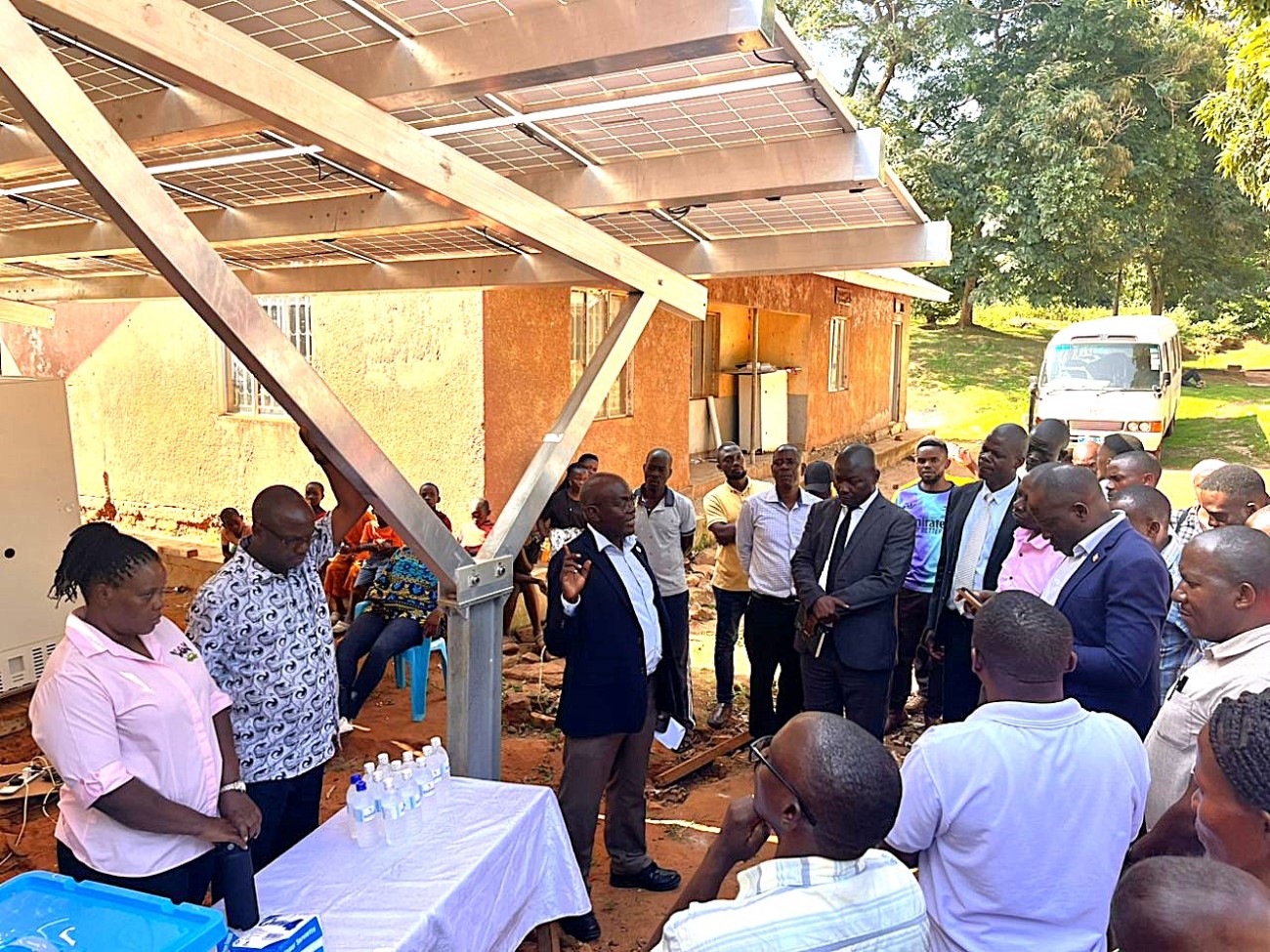
Dr. Joshua Wanyama discussed the water quality management protocols, outlining key physical, chemical, and biological water parameters and monitoring strategies, including modern IoT-based tools, to ensure water safety and public health.
The day concluded with a hands-on lab session by Dr. Prossie Nakawuka, where participants practiced water quality testing using turbidimeters, incubators, and filtration techniques.
Overall, Day Two combined theoretical insights, technology demonstrations, and practical skills, preparing participants to implement sustainable water treatment and quality management systems in healthcare environments.
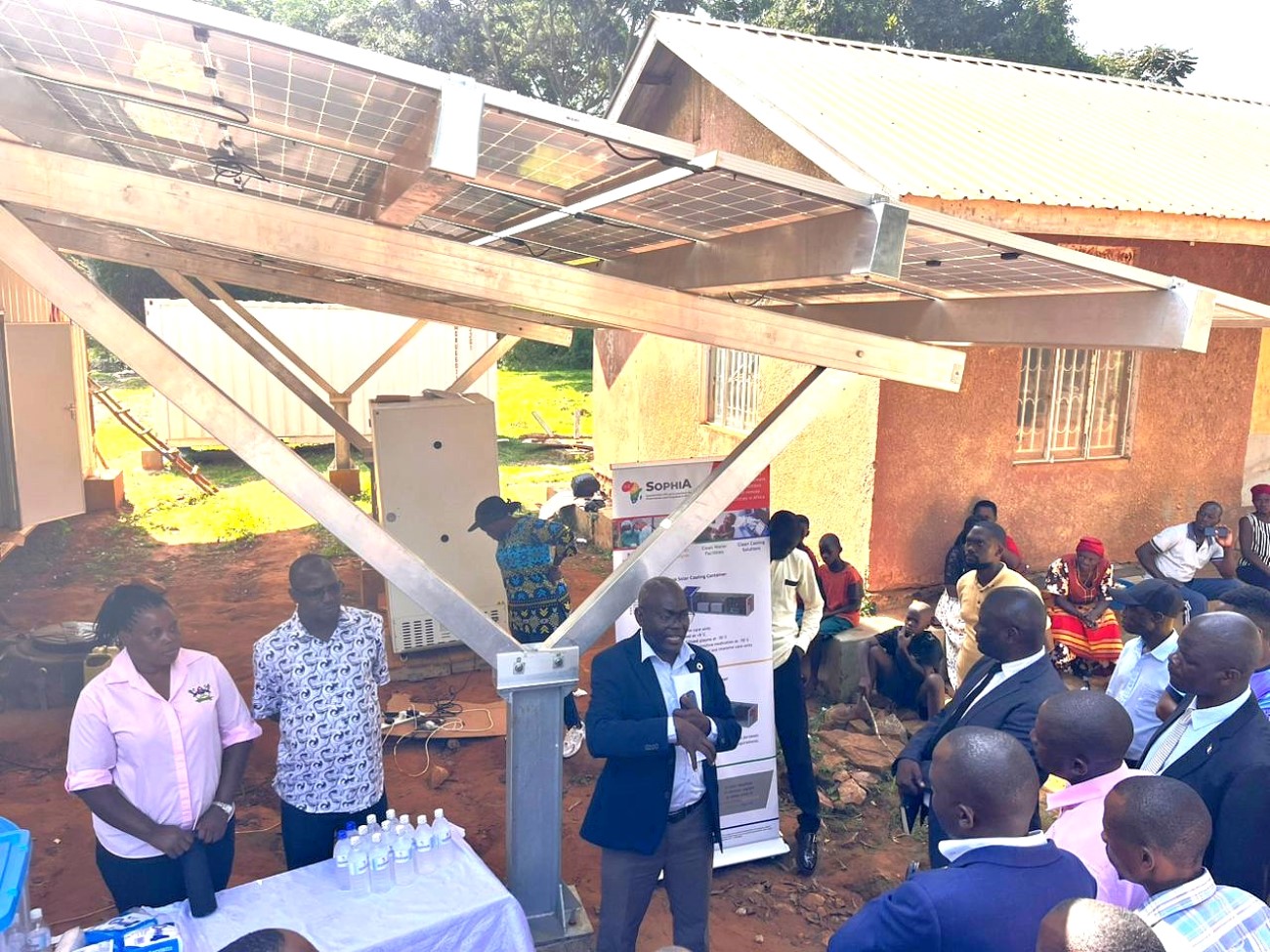
Day Three: Refrigeration and Cold Storage
The third day of the SophiA workshop focused on sustainable refrigeration and cold storage technologies tailored for healthcare in Sub-Saharan Africa. Experts discussed energy-efficient, climate-friendly cooling solutions vital for vaccine storage, medicines, and diagnostics, especially in off-grid and rural settings.
Key highlights included the introduction of solar-powered and biomass-based refrigeration systems, thermal energy storage methods, and the use of natural refrigerants like propane, ammonia, and CO₂ as environmentally safer alternatives. Presentations emphasized the critical role of refrigeration in healthcare and the urgent need to replace harmful chemicals with sustainable technologies.
Sessions covered real-world applications such as the SophiA cooling containers in Burkina Faso, safety protocols for flammable refrigerants, and the environmental and economic benefits of solar refrigeration systems assessed through life cycle analysis.
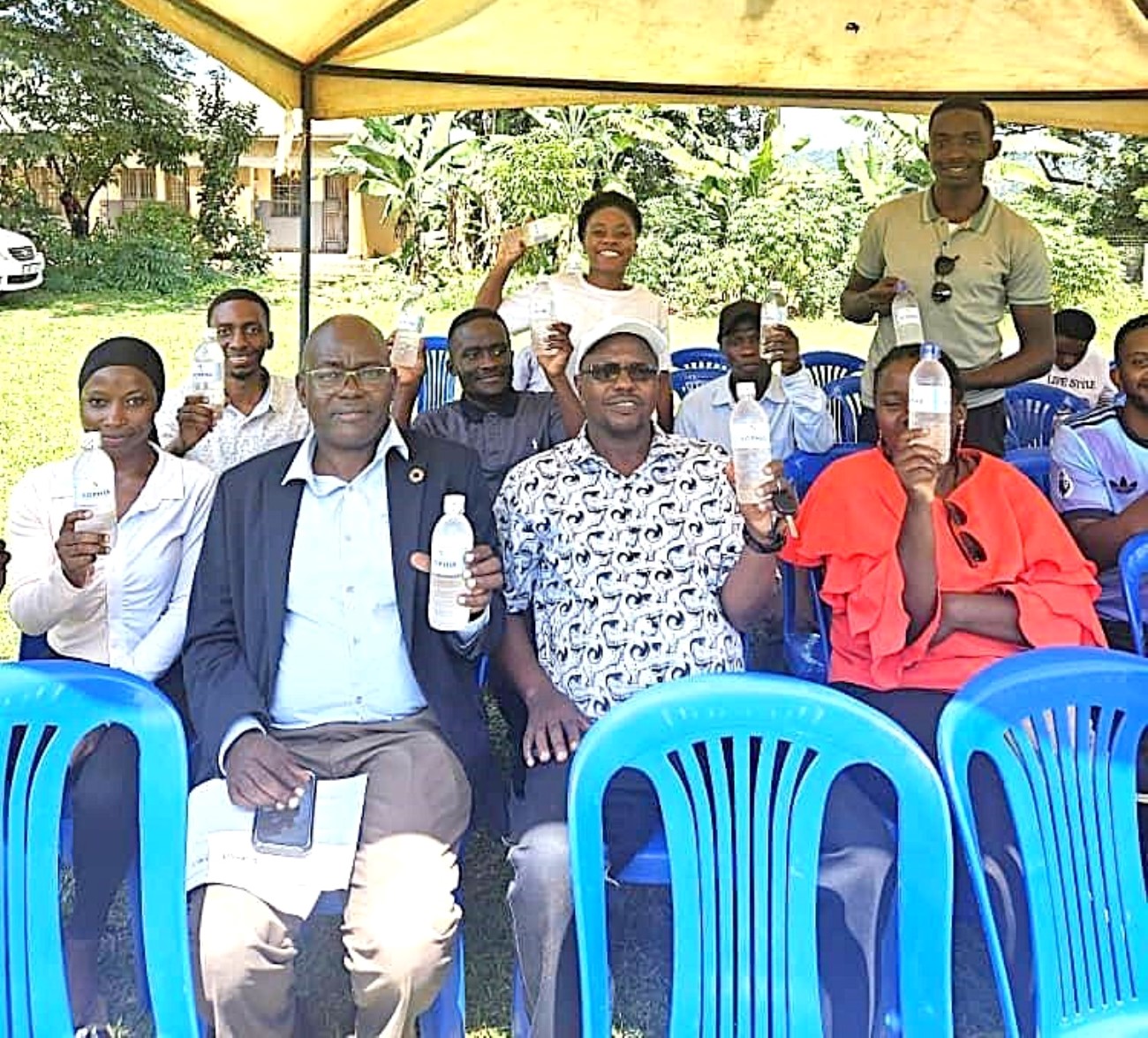
The day ended with an interactive quiz and discussion, reinforcing learning and encouraging participants to apply sustainable cooling practices in their communities.
Day Four: World Refrigeration Day & Field Visit to Buvuma Island
The fourth day of the SophiA Train the Trainers workshop was dedicated to the celebration of the World Refrigeration Day and a field excursion to Buvuma Island, providing participants with a unique opportunity to witness the SophiA system in action. The day was coordinated by Dr. Sarah Bimbona and Dr. Nicholas Kiggundu, who led the delegation to Buvuma Health Centre IV, the pilot site for the SophiA installation in Uganda.
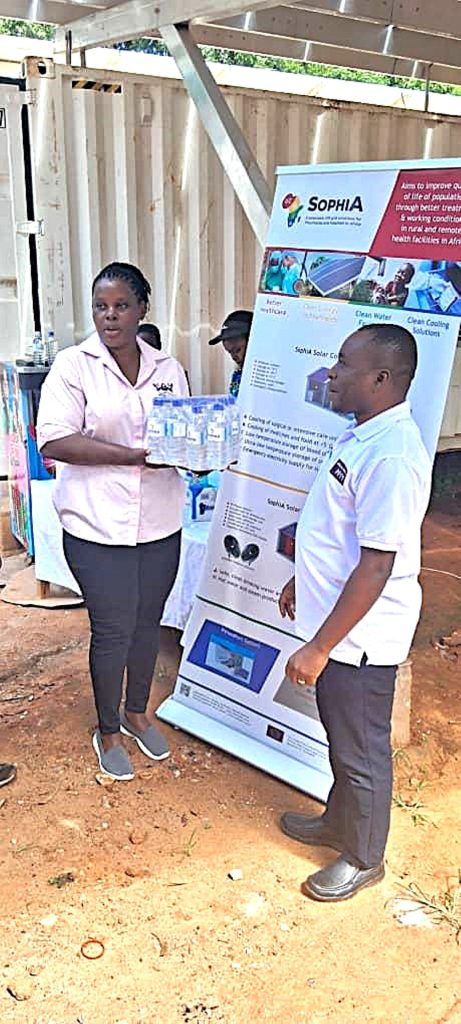
The visit served as both a practical extension of the previous day’s technical sessions and a community engagement event. Participants were able to observe the installed SophiA system, which integrates solar-powered refrigeration, water treatment and steam generation technologies designed for off-grid healthcare settings. During the visit, Dr. Kiggundu provided a detailed briefing to local stakeholders, including representatives from the Buvuma District Local Government, delegates from the Buganda Kingdom, and members of the local community. He explained how the SophiA system will enhance healthcare delivery on the island through reliable cold storage for vaccines and medicines, access to clean drinking water, and steam generated for cooking and use in the maternity wards.
As part of the long-term sustainability plan for the SophiA system, the launch of SophiA Water was announced, an entrepreneurial initiative designed to generate revenue locally for the operation and maintenance of the system.
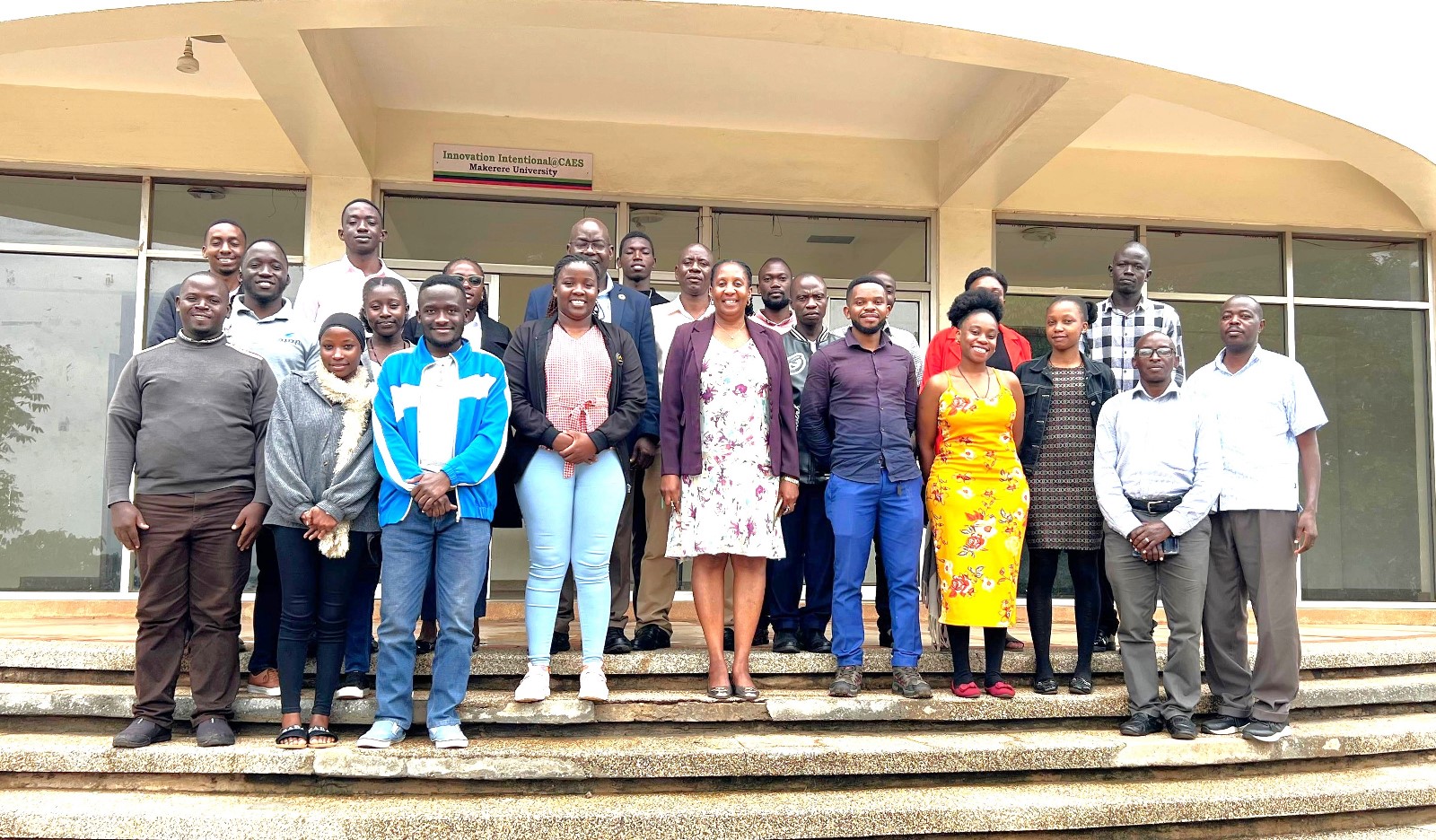
The field trip ended with a certificate awarding ceremony in appreciation of the participants’ dedication and active engagement throughout the training programme.
Agriculture & Environment
APRC Trains Graduate Students & Stakeholders in the Use of the African Agriculture Adaptation Atlas
Published
2 weeks agoon
July 3, 2025
The Agricultural Policy Research Centre (APRC), housed within the College of Agricultural and Environmental Sciences (CAES) at Makerere University, continues to play a pivotal role in shaping Uganda’s agricultural future through evidence-based policymaking. With a mission to ensure that agricultural policies are grounded in empirical research and data, APRC is actively investing in capacity-building initiatives that empower researchers, policymakers, and development actors.
In a significant stride toward building climate resilience in African agriculture, APRC recently organized a two-day intensive training workshop focused on the African Agriculture Adaptation Atlas (AAAA) – a state-of-the-art, web-based decision-support platform that facilitates the integration of climate data into agricultural planning and policy.

The workshop, held on Wednesday 25th and Thursday 26th June 2025 at the School of Agricultural Sciences, Makerere University, targeted two key groups: graduate students on the first day, and university faculty, government officials, and development practitioners on the second. This structure ensured tailored learning experiences for both emerging and seasoned professionals, helping to bridge the gap between academic research and real-world policy implementation.
The African Agriculture Adaptation Atlas (AAAA) is designed to provide dynamic, data-rich visualizations that support informed decision-making in agriculture and food systems across the continent. Through interactive maps and analytical tools, users can explore projected climate impacts, evaluate risks, and identify localized, climate-smart adaptation strategies.

Throughout the sessions, participants received hands-on training in a broad range of AAAA functionalities, including:
- Leveraging the Atlas for research and policy communication: Enhancing the ability of scientists and policy actors to translate complex climate data into actionable insights;
- Assessing projected climate impacts and associated agricultural risks: Essential for forward-looking planning and risk mitigation;
- Identifying climate-smart investment options, with a particular focus on the livestock sector, which is especially vulnerable to climate shocks;
- Analysing gendered vulnerabilities: Examining how climate change disproportionately affects women in agricultural communities;
- Understanding the implications of heat stress on agricultural productivity: Supporting targeted interventions to protect producers and their livelihoods;
- Estimating the economic returns of adaptation strategies: Aiding in prioritizing investments and allocating limited resources effectively.

Prof. Bernard Bashaasha, the APRC Coordinator, emphasized the importance of the training in advancing Africa’s adaptation agenda. “As climate change continues to threaten food security and disrupt livelihoods across the continent, tools like the AAAA, and the skills to use them effectively are essential. They empower decision-makers to craft policies that are adaptive, inclusive, and rooted in science,” he noted.
The workshop was coordinated by Dr. Florence Rwiza, Lecturer in the Department of Agribusiness and Natural Resource Economics at CAES.
More photos from the Training






Trending
-

 General2 weeks ago
General2 weeks agoRe-advert: Admission to Undergraduate Programmes 2025/2026
-

 General1 week ago
General1 week agoRe-Advert for Applications for Diploma and Certificate Training
-

 General5 days ago
General5 days agoMakerere University Fees Waiver for 40 First Year Female Students 2025/2026
-

 General2 weeks ago
General2 weeks agoPress Statement on Ranking
-

 Health1 week ago
Health1 week agoCall for Applications: Responsible Conduct of Research (RCR) Training Course
